Saving Western civilization one student at a time. Winter

 BY DR. LETA SUNDET
BY DR. LETA SUNDET





 BY DR. LETA SUNDET
BY DR. LETA SUNDET



In1965, on the small island of Tonga in the South Pacific, six schoolboys, ranging in age from thirteen to sixteen, "borrowed" a local fisherman's boat and took it on a joyride that lasted over fourteen months. They were bored, and so they decided to sail for Fiji, another South Pacific island five hundred miles away. Not thinking to bring a map or a compass, and provisioning themselves with only some bananas, coconuts, and a small gas burner (they were boys, after all), they set forth on their adventure.
The boys sailed vaguely in the direction they thought Fiji might lie and eventually fell asleep. They awoke in a storm; the sail was ripped from the small craft by the wind and they lost their rudder. After the storm abated they floated for eight days.

One morning they woke up and saw a small island—not a tropical paradise but a "hulking mass of rock jutting up" out of the ocean. They managed to swim ashore, to what they later discovered was the small island of 'Ata. They were marooned on a desert island.
Dutch writer Rutger Bregman tells the true story of this very boyish adventure in his book Humankind: A Hopeful History. He acknowledges the similarities to William Golding's Lord of the Flies, where a group of British schoolboys are stranded on a jungle island. Several of the boys take over and inaugurate a reign of terror. But the similarities extend only as far as the circumstances. In Golding's story, the worst aspects of the human soul assert themselves. For the youthful castaways on 'Ata, it was much different.
At first the boys just tried to stay alive. "They survived," says Bregman, "initially on fish, coconuts, tame birds." And when one boy broke his leg, the others set it with sticks and leaves. But the boys eventually discovered a crater where the original natives, taken away on a slave ship in 1863, had once lived. "There," Bregman recounts, "the boys discovered wild taro, bananas and chickens (which had been reproducing for the hundred years since the last Tongans had left)."
The fisherman who finally rescued the boys recounted what he found when he got there:
[T]he boys had set up a small commune with a food garden, hollowed-out tree trunks to store rainwater, a gymnasium with curious weights, a badminton court, chicken pens and a permanent fire, all from handiwork, an old knife blade and much determination…. The kids agreed to work in teams of two, drawing up a strict roster for garden, kitchen and guard duty. Sometimes they quarrelled, but whenever that happened they solved it by imposing a time-out. Their days began and ended with song and prayer.
Unlike the boys in Lord of the Flies, the Tongan boys worked well together and managed to create their own semblance of a society. How did they do this? Not only had they learned enough of growing food to create their own gardens, but they also knew the songs they needed to sing and the prayers they needed to pray to grow their souls. One of the boys, who had prayed repeatedly to God to save them, promised to become a minister if he survived. He did survive, and he became a minister.
Eugen Rosenstock-Huessy once said that a citizen is a person who, if need be, could recreate his own civilization. These boys had been taught the rudiments of Western civilization by the teachers at their boarding school. And, when faced with the necessity of recreating it, they did.
Western civilization is a complex and magnificent thing, but in many ways it is imperiled today. If it were suddenly to topple, would our children know it well enough to recreate it?
On Wings of Gold: e Power of Heroic Song by Dr. Carol Reynolds
CLASSICAL / CHRISTIAN STUDIES
Professor Carol: Discovering Music, Exploring America's Musical Heritage, & Early Sacred Music
$104.26 complete set (student, teacher, CD, videos, flashcards) $38.17 basic set (student, teacher, CD) Student $16.50 | Teacher $16.50 | CD $9.50 Videos $55.00 | Flashcards $15.95





Leigh Lowe | Grades 1-4

Prima Latina is a gentle introduction to Latin speci cally designed for students and teachers with no Latin background. It teaches the basic parts of speech while introducing Latin, grounding students in the fundamental concepts of English grammar. Prima Latina transitions seamlessly into Latina Christiana
Each lesson of the Student Workbook includes ve Latin vocabulary words and English derivatives, a Latin saying, a Latin prayer, and grammar exercises. e Teacher Guide has a full answer key and unit tests. e Pronunciation CD has a complete recitation of the Latin prayers and vocabulary as well as four songs from Lingua Angelica . About half the vocabulary o f Latina Christiana is introduced in Prima Latina , so the Latina Christiana Flashcards are used for both programs. If you are looking for additional support in teaching your student, the author, Leigh Lowe, has recorded detailed Instructional Videos for every lesson that are sure to delight your young students!



by Cheryl Lowe | Grades 3-6
Begin your Latin study here or continue on from Prima Latina . Each lesson consists of a grammar form, ten vocabulary words, English derivatives to help build vocabulary, and a Latin saying that teaches students about their Christian and classical heritage.
e Teacher Manual includes a complete copy of the student book with overlaid answers, and provides detailed weekly lesson plans, comprehensive teaching instructions, tests, and weekly quizzes and keys.
$103.12 complete set (student, teacher, CD, videos, flashcards) $45.76 basic set (student, teacher, CD)
Student $17.50 | Teacher $21.95 | CD $9.50
Videos $55.00 | Flashcards $15.95



Grades 3-6
Review Worksheets $10.95

Review Worksheets Key $5.50
We highly recommend Latina Christiana Review Worksheets as a companion to Latina Christiana . Two pages of cumulative review for every lesson of Latina Christiana will ensure your students get weekly reinforcement of old and new concepts.



Grades 3-6

Games & Puzzles $12.95 | Games & Puzzles Answer Key $5.50


In this activity book we've stu ed enrichment activities of every kind to help your students practice the vocabulary, grammar, and derivatives in Latina Christiana . Students will nd hours of enjoyment playing Latin hangman, solving Latin crossword puzzles, and competing against each other in Latin picture games, while you can secretly delight in the fact that such "fun" work is actually worthwhile!

Wall Charts (left) (33" x 17") (4 charts total) $22.00
Desk Charts (right) (8.5" x 11") (4 charts total) $13.95

All of the grammar forms from Latina Christiana are organized here in a clean, easy-to-read format that is a perfect visual aid for a classroom wall or student desk.



e Latin Forms Series is based on decades of teaching experience and use in private schools and homeschools around the world. First Form is the ideal text for all beginners, grades 5 and up, or is a great follow-up to Latina Christiana. e uniqueness of the Forms Series lies in two features:

1) A systematic, grammar- rst approach to learning Latin that is suitable for the grammar stage student—and all beginners, regardless of age, are in the grammar stage of learning.
2) Extensive workbook exercises that ensure skill mastery and rapid recognition of in ected forms.
Our text and guides help every student (and teacher!) make sense of this di cult subject. A complete set includes:
• 34 two-page lessons in the Student Text are paired with 4-6 pages of Student Workbook exercises, weekly Quizzes, and unit Tests to make sure your students are mastering and retaining what they learn.
• e Pronunciation CD and Flashcards provide constant practice of grammar forms and vocabulary.
• e scripted Teacher Manual and complete Teacher Key give even the most novice Latin teacher the tools to teach with con dence.
• Instructional Videos in DVD or streaming format are also available, to bring the experience and expertise of a Highlands Latin School master teacher into your home.
First Form Latin: Latin Grammar, Year One by Cheryl Lowe




Grades 5+ (Grades 4+ if completed Latina Christiana)

(First Form shown)
$131.78 complete set ea. (all 5 books, CD, videos, flashcards) $71.16 basic setea. (all 5 books + CD)

Text $15.00 ea. | Workbook $16.50 ea. Teacher Manual $12.95 ea. | Teacher Key $16.50 ea. Quizzes & Tests $5.50 ea. | CD $9.50 ea. | Flashcards $15.95 ea. Instructional Videos: DVDs or Streaming $55.00 ea.
Second Form Latin: Latin Grammar, Year Two by Cheryl Lowe | Grades 6+






ird Form Latin: Latin Grammar, Year ree by Cheryl Lowe | Grades 7+



by Cheryl Lowe
Grades 5+ Student $13.95 ea. Key $10.95 ea.
Fourth Form Latin: Latin Grammar, Year Four by Cheryl Lowe & Michael Simpson Grades 8+


Students are prone to forget what they have learned from year to year—an especially detrimental loss for the Latin student. To prevent this, Memoria Press has developed these summer courses that feature vocabulary review, form drills, and other exercises, all designed to foster mastery and retention.

A grammar-based approach to learning Latin.

New American Cursive font Grades 1-4 $15.50
is Latin copybook in the New American Cursive font, featuring vocabulary practice and a page to copy each prayer in Prima Latina, is a great way to help your children practice their Latin while developing penmanship skills.

Hymns & Prayers
Grades 4-6 $15.50
Practice your cursive with Latin sayings and hymns and prayers from Latina Christiana, First Form Latin, and Lingua Angelica


Grades 4+ | $26.90 set (flashcards and handbook)
Flashcards for every grammar form taught and recited in our Latin Forms Series and a handbook with a lesson-by-lesson schedule for coordinating with the recitations in First Form through Fourth Form





Grades 3+ CD & DVD $16.50
e entire Latin grammar, presented by Cheryl Lowe. CD is audio only; DVD includes visual grammar charts.



Grades 5+
Introduction $10.95
Beginning Latin Exam (formerly Level I) $16.50



Intermediate Latin Exam (formerly Level II) $21.95

Intermediate Reading Comprehension Exam (formerly Level III) $21.95



ese guides include the vocabulary, grammar, syntax, Roman history, culture, mythology, and geography commonly found on the National Latin Exam. When paired with previous exams, these guides are perfect preparation for the NLE.
Find samples and full product descriptions at MemoriaPress.com!

Wall Charts (33" x 17")
First Form (4 charts) $22.00
Second Form (3 charts) $22.00

Angelica I & II
Latin Songs & Prayers (Translation Course) by Cheryl Lowe

$43.48 setea. (student & teacher, song book, & CD)
Student $12.95 ea. | Teacher $18.50 ea. Song Book* $10.95 | Music CD* $11.95
*Used for both LA I and II
Latin & Greek Roots for Beginners by Paul O'Brien Grades 6-8 $21.95


An introduction to English vocabulary through a study of Latin and Greek roots.
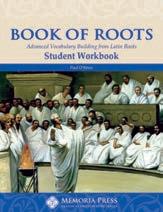

Advanced Vocabulary Building from Latin Roots by Paul O'Brien
Grades 8+ Student $24.95 Key $5.50 Your student will learn the de nition and etymology of over 1,500 English derivatives, along with pre xes, su xes, and supplemental Latin vocabulary lists.


Desk Charts (8.5" x 11")
First & Second Form (6 charts) $13.95 ird & Fourth Form (20 charts) $17.50


Lingua Biblica: Old Testament Stories in Latin by Martin Cothran Grades 9+ Student $21.95 Teacher $21.95 Translation exercises from the Latin Vulgate. Each lesson includes exercises at three levels of di culty.






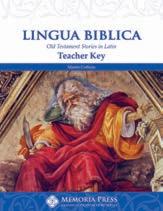






by Cheryl Lowe
All Ages | $16.50
Vocabulary work, interlinear translation exercises, and grammar word study exercises for 28 hymns sung by a six-voice Gregorian chant choir.
A compendium of Latin grammar forms and a basic introduction to Latin syntax. Includes all conjugations and declensions, making it an easily accessible reference.


Originally published in 1945, the Henle Latin Series teaches Latin the traditional way. Our Teacher Manuals split the work of Henle Latin First Year over two years, scheduling what to do every step of the way. e Manuals include scripted lessons for the teacher, additional explanations and practice for the student, and a full answer key. e Quizzes & Tests help you measure your mastery along the way.
Note: Though Henle is considered a Catholic text, its superiority as a teaching resource and the outstanding benefits of its Christian perspective also make it appropriate for Protestants.
Advanced Christian Latin by Robert Henle Grades 9+








$70.66 set (text, key, student, quizzes & tests, flashcards)
Text $21.99 | Key $7.99 Student Guide $17.50
Quizzes & Tests $10.95 Flashcards $15.95
After the completion of Henle Latin First Year or Memoria Press’ Latin Forms Series, the next step for Latin students is Henle Latin Second Year , which rounds out the Latin grammar and introduces students to the text of Caesar’s De Bello Gallico . Memoria Press now offers a Student Guide with comprehensive guidance for each lesson as well as Quizzes & Tests to assess progress and mastery. These resources contain everything needed to succeed in the course and conquer the first step into the world of authentic Latin texts.

Advanced Christian Latin by Robert Henle Grades 11+
$28.48 set (text, key)
Text $21.99 | Key $7.99
Henle Latin Fourth Year leads students through Cicero's Defense of Archias and the rst six books of the culmination of Latin poetry, Virgil's Aeneid
Mueller's text and accompanying Teacher's Guide will lead students through Caesar's account of his wars in Gaul. A perfect text for Latin students who are ready to translate, this program includes vocabulary, footnotes, historical background, and other resources, preparing interested students for the Caesar portion of the AP Latin Exam. Memoria Press' Lesson Plans schedule the work and teach, step by step, how to approach Latin translation.



Advanced Christian Latin by Robert Henle | Grades 8+
$58.43 Text Set (Henle I text, key, and grammar)
$79.12 Units I-V Guides and Instructional Videos Set (I-V teacher manual, quizzes & tests, instructional videos)
$79.12 Units VI-XIV Guides and Instructional Videos Set (VI-XIV teacher manual, quizzes & tests, instructional videos)
Henle I Text $21.99 | Henle I Key $7.99 | Henle Grammar $16.99
Henle Latin I Vocabulary Flashcards $17.95




Henle Latin First Year Teacher Manual: Units I-V or VI-XIV $21.95 ea.







Henle Latin First Year Quizzes & Tests: Units I-V or VI-XIV $10.95 ea.




NEW: Henle Latin First Year Streaming Instructional Videos: Units I-V or VI-XIV $55.00 ea.
Advanced Christian Latin by Robert Henle Grades 10+
$91.51 set (text, key, student, teacher, quizzes & tests, flashcards)
Text $21.99 | Key $7.99 Student Guide $17.50 Teacher Manual $21.95 Quizzes & Tests $10.95 Flashcards $15.95
Henle Latin ird Year teaches students to reach beyond grammar and grasp the rudiments of rhetoric with the help of Cicero, perhaps Rome's most illustrious orator. Memoria Press' Student Guide, Teacher Manual, and Quizzes & Tests are sources of invaluable support in learning and mastering rhetorical Latin, even without the guidance of an experienced teacher. ese texts organize the course into a sensible schedule, provide a wealth of insight to assist students in their exercises, and provide levelappropriate assessments to determine mastery of Latin.
Grades 8+
Henle Latin First Year Flashcards $17.95
Henle Latin Second Year Flashcards $15.95
Henle Latin ird Year Flashcards $15.95
Mueller's Caesar:
from De
by Hans-Friedrich Mueller Grades 10+
$79.75 set (text, teacher, lesson plans)
Text $44.00 | Teacher $24.00 Lesson Plans $15.95
Vergil's Aeneid: Selected Readings from Books 1, 2, 4, and 6





by Barbara Weiden Boyd
Student $44.00
Teacher $24.00
is course covers all lines of Vergil on the AP Latin Exam. Each page contains the Latin text, key vocabulary, and English summaries.

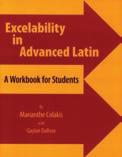

by Marianthe Colakis
Student $30.00
Teacher $30.00
is course contains over 75 passages drawn from a variety of Latin authors, translation exercises, multiple choice tests, practice sight-reading Latin, and a comprehensive review of Latin grammar.


All vocabulary appearing ve or more times on the Vergil and Caesar sections of the AP Latin Exam.

When it comes to expressing the eternal and immutable truths of the Christian faith, the only good language is a dead language.
Chesterton once made a disarming retort to the customary detraction of Latin as a dead language. He simply remarked that to say this is not a detraction at all, for quite in contrast to the detractor's intentions, it throws into profile the clear ascendancy of Latin over all the "living" languages of today:
It is the question of a dead language and a dying language. Every living language is a dying language, even if it does not die. Parts of it are perpetually perishing or changing their sense; there is only one escape from that flux; and a language must die to be immortal.
Yes, indeed, pagan Latin eventually bit the dust, and the Western mind turned with relish to the new throng of spawning tongues which began to mottle the linguistic map of Europe. But then came one of those bizarre turns in human history that makes us wonder just how human it really is. After Rome had lost its imperial dignity to Byzantium, and furthermore taken the moral nosedive of soaking its arenas in Christian blood, it would have surprised no one had the last dying syllables of the Empire's language remained inaudible to history. But at the opening of the fifth century, within the African walls of Hippo, St. Augustine was penning the last chapters of The City of God and must have looked up from his desk every few minutes or so, wondering if Genseric's hordes were going to bring his episcopal residence down on his head. With the grace of God, Augustine finally brought his book to an end, but in the interim, the Vandals had also brought Hippo to an end. Latin died to the world. This was in 430 A.D.
Just years before, St. Jerome had completed his Latin translation of the Bible. He did his work largely in Palestine, as St. Augustine had in Africa, but in Rome itself, where the Hellenized Jewish converts had arrived with the Good News from Palestine, many of them turned their energies to the translation of the Greek Gospel and liturgy into a Latin the waning Romans could understand. The language was dying, but the souls of those who still spoke it were nonetheless in need of salvation.

To everyone's surprise, there rose upon the field of this purely instrumental effort something like a linguistic renaissance, as a host of prefaces, collects, orations, secrets, and post-communions grew into what is known to us today as the Leonine Sacramentary.
Dr. Scott Randall Paine is a priest of the archdiocese of Brasilia and professor of philosophy at the University of Brasilia. He is author of The Universe and Mr. Chesterton (Sherwood Sugden, 1999) and various articles on philosophy and theology. This article first appeared in the July 1990 edition of The Homiletic & Pastoral Review.
“A language must die to be immortal.”
Roman civilization went on and died; the last emperor unceremoniously left the scene in 476 A.D. But paradoxically, the heart of the Latin language was still beating strongly, and its conjugations and declensions were carried on the breath of a new host of talkers. But there was a difference: For what these men were talking about was something hitherto unheard of on the street corners of history, and statements were being made that no period of Cicero's had even remotely embraced.
This is Chesterton's point. The Latin language died, indeed, but the death it died it died to the world. In the small enclave of the Christian Church, the same language experienced nothing less than a miraculous resurrection; and the analogy can be pursued to the end. The bloodless carcass of the language, filled to the skin with the earthbound schemes of the ancients, could no longer respond to the soul of paganism; like every merely natural body, the life that had sustained it was merely mortal. So history slowly dragged it off to the grave, that one more might be added to the thousand withered tongues of time.
But then came Latin's Easter sunrise, for after the Gospel of Christ had been rejected by the Jews, the Prince of the Apostles sealed his witness to the Master by reddening a hill in Rome we now call the Vatican. And then, like a hurricane abruptly changing course, the full fury of Christ's message turned itself suddenly and excitedly upon this prostrate language of the Romans, and, lifting a hand over its lifeless heap of words—all of them tongue-tied by centuries of unanswered questions—it cried out, "Ephphatha!"—and the tongue was loosed, and Christian Latin began to speak to the world.
The Christian Latin which we find in the Vulgate, in St. Augustine, in the Latin Fathers, and in the early Sacramentaries is not just a salvaged Latin, shaken, dusted off, and clumsily recycled in an age that had lost the inspiration of the days of Virgil and Horace. This was the Renaissance view of the matter. It is rather a language reborn through obstetrics irreducible to ordinary linguistic evolution; and what the literati mistake for barbaric unsophistication is rather the dignified simplicity demanded by the mysteries of a God who is Simplicity Itself. The anointment of the Spirit seems to
force this Latin to move about more modestly, with a kind of self-forgetful gait, but for all this it moves far closer to the hushed world of God's most intimate secrets.

This is the first claim I should like to make for Christian Latin, namely that it was the same language that had "known" the wisdom of Greco-Roman antiquity, but had died a natural death as that wisdom exhausted its resources. It then was resurrected from the dead by the supernatural Truth of Christ.
The second claim I raise is this: though Christian Latin was not born with Christianity itself, it was nonetheless born with Christian theology, and thus, not only its characteristic simplicity (at least when compared with classical Latin), but also its new world of meanings grew apace with the new understanding of the faith. The unique powers of Western speculation, starting with Augustine and one day to climax in the overwhelming Latin edifice of Aquinas, were fruits borne in the language in which Christian thought first moved and matured.
The third claim is the most pertinent of all, at least for us who ride on the stampede of modern progress. Chesterton observed that the only way for a language to be truly living is to die and to resurrect by the agency of a higher, life-giving force (such as the Church). The common, vernacular tongues of everyday life are immersed in the contingencies of time and subject to the vagaries of the world's currents of change. All the spoken languages of the world are undergoing slow deaths, and parts of them are being draped every day in black. But the only reason I bring all this up is the effect it has on our ability to think and talk about immutable doctrines.
Certainly we need to speak supernatural truths in the vernacular as well, but I am afraid we will have to drink the doctrine fast, for these old wineskins are hardly better than paper sacks, and the weakness of our fickle contemporary tongues is tearing leaks in the fabric of the language almost as fast as we utter our words. If the truths of the faith are forever new (as they most definitely are), then we should keep them well nested within a language that has already been lifted above this linguistic mortuary we inhabit, invested with some share in the unchanging status of eternity, and thus made dead to this world and alive to another.
And then, like a hurricane abruptly changing course, the full fury of Christ's message turned itself suddenly and excitedly upon this prostrate language of the Romans.



$47.94 set (guides & novels)
Student Guide $16.50
Teacher Guide $18.50
Little Bear $4.95

Caps for Sale $8.99

Frog and Toad Are Friends $4.99

Make Way for Ducklings $9.99

More StoryTime Treasures
$68.19 set (guides & novels)
Student Guide $16.50
Teacher Guide $18.50

Billy and Blaze $8.99
Blaze and the Forest Fire $8.99



e Story About Ping $4.99

Keep the Lights Burning, Abbie $7.99
Stone Soup $7.99

e Little House $7.99

Miss Rumphius $8.99

$92.05 guide set (student & teacher guides)
$142.94 guides + novelsset (guides & novels)
Student Guide $12.95 ea.
Teacher Guide $7.50 ea.
Animal Folk Tales of America $12.95




Prairie School $4.99



e Courage of Sarah Noble $5.99




Little House in the Big Woods $9.99


Beatrix Potter novels $7.99 ea.






Recommended Supplement: Literature Dictionary $5.50
























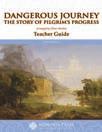

$73.80 guide set
(student & teacher guides)
$98.47 guides + novelsset
(student and teacher guides & novels)

e Lion, the Witch and the Wardrobe
Student Guide $12.95 Teacher Guide $12.95 e Lion, the Witch and the Wardrobe $9.99


Heidi Student Guide $12.95 Teacher Guide $12.95 Heidi $7.99



Lassie Come-Home
Student Guide $12.95 Teacher Guide $12.95 Lassie Come-Home $7.99



$98.40 guide set
(student & teacher guides)
$127.81 guides + novelsset (student and teacher guides & novels)

Adam of the Road
Student Guide $12.95 Teacher Guide $12.95 Adam of the Road $7.99
e Door in the Wall
Student Guide $12.95 Teacher Guide $12.95 e Door in the Wall $6.99


e Adentures of Robin Hood
Student Guide $12.95 Teacher Guide $12.95 e Adventures of Robin Hood $7.99






King Arthur and His Knights of the Round Table
Student Guide $12.95 Teacher Guide $12.95 King Arthur and His Knights of the Round Table $7.99



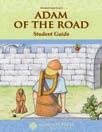
$98.40 guide set
(student & teacher guides)
$135.37 guides + novelsset (student and teacher guides & novels)
e Trojan War


Student Guide $12.95 Teacher Guide $12.95 e Trojan War $8.99

Anne of Green Gables


Student Guide $12.95 Teacher Guide $12.95 Anne of Green Gables $9.95


$98.40 guide set
(student & teacher guides)
$135.30 guides + novelsset
(student and teacher guides & novels)
Treasure Island

Student Guide $12.95 Teacher Guide $12.95 Treasure Island $9.95
e Wind in the Willows
Student Guide $12.95 Teacher Guide $12.95 e Wind in the Willows $9.95



e Bronze Bow
Student Guide $12.95 Teacher Guide $12.95 e Bronze Bow $8.99

e Hobbit
Student Guide $12.95 Teacher Guide $12.95 e Hobbit $10.99


As You Like It
Student Guide $12.95 Teacher Guide $12.95 As You Like It $9.95


e Adventures of Tom Sawyer
Student Guide $12.95 Teacher Guide $12.95 e Adventures of Tom Sawyer $9.00









Grade 9
$98.40 guide set
(student & teacher guides)
$140.10 guides + novelsset
(student and teacher guides & novels)
Sir Gawain and the Green Knight
Student Guide $12.95 Teacher Guide $12.95
Sir Gawain and the Green Knight $12.00



Grade 10
$98.40 guide set
(student & teacher guides)
$129.55 guides + novelsset
(student and teacher guides & novels)
Romeo & Juliet
Student Guide $12.95 Teacher Guide $12.95 Romeo & Juliet $5.95



Beowulf the Warrior
Student Guide $12.95 Teacher Guide $12.95 Beowulf the Warrior $10.95

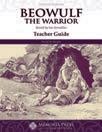
e Hound of the Baskervilles Student Guide $12.95 Teacher Guide $12.95 e Hound of the Baskervilles $11.00





A Midsummer Night's Dream
Student Guide $12.95 Teacher Guide $12.95 A Midsummer Night's Dream $10.00


e Scarlet Letter Student Guide $12.95 Teacher Guide $12.95 e Scarlet Letter $8.95



Julius Caesar
Student Guide $12.95 Teacher Guide $12.95 Julius Caesar $7.95



Student Guide $12.95 Teacher Guide $12.95 Pride & Prejudice $9.95


Grade 11
$61.18 set (text, student, teacher, quizzes & tests)
$113.43 complete set (all books + streaming instructional videos)
e Divine Comedy Student Guide $18.95 Teacher Guide $18.95 Quizzes & Tests $5.50









e Divine Comedy $21.00
Streaming Instructional Videos $55.00
Mix and match any 10 or more individual Memoria Press literature guides and receive 15% o your literature guide purchase! Use coupon code LITGUIDE at checkout!
Grade 12
$98.40 guide set
(student & teacher guides)
$154.30 guides + novelsset
(student and teacher guides & novels)
A Tale of Two Cities
Student Guide $12.95 Teacher Guide $12.95
A Tale of Two Cities $11.95

Hamlet


Student Guide $12.95 Teacher Guide $12.95 Hamlet $8.95
Macbeth


Student Guide $12.95 Teacher Guide $12.95 Macbeth $7.95

Anna Karenina

Student Guide $12.95 Teacher Guide $12.95 Anna Karenina $30.00
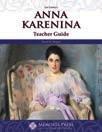
e Mo ats
Grades 3-4
Student Guide $12.95 Teacher Guide $12.95 e Mo ats $7.99
My Side of the Mountain Grades 4-5
Student Guide $12.95 Teacher Guide $12.95 My Side of the Mountain $7.99


e Twenty-One Balloons Grades 5-7



Student Guide $12.95 Teacher Guide $12.95 e Twenty-One Balloons $7.99
e Magician's Nephew Grades 5-7
Student Guide $12.95 Teacher Guide $12.95 e Magician's Nephew $9.99
Little Women Grades 8-9

Student Guide $12.95 Teacher Guide $12.95 Little Women $14.95


Henry IV, Part 1 Grades 9+
Student Guide $12.95 Teacher Guide $12.95 Henry IV, Part 1 $9.99




Henry V Grades 9+
Student Guide $12.95 Teacher Guide $12.95 Henry V $9.99

Grades 9+ | $10.95 is handy companion book is a compilation of all the literary and rhetorical terms used in our upper school literature guides.
King Lear Grades 9+



Student Guide $12.95 Teacher Guide $12.95 King Lear $7.95
e Merchant of Venice Grades 9+


Student Guide $12.95 Teacher Guide $12.95 e Merchant of Venice $7.95



Wuthering Heights Grades 9+


Student Guide $12.95 Teacher Guide $12.95 Wuthering Heights $8.99


Jane Eyre Grades 9+

Student Guide $12.95 Teacher Guide $12.95 Jane Eyre $11.95




Canterbury Tales Grades 9+

Student Guide $12.95 Teacher Guide $12.95 Canterbury Tales $12.95

To Kill a Mockingbird Grades 9+


Student Guide $12.95 Teacher Guide $12.95
To Kill a Mockingbird $15.99


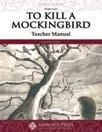
Robinson Crusoe Grades 9+
Student Guide $12.95 Teacher Guide $12.95 Robinson Crusoe $10.00







Memorization is the cornerstone of a traditional education. At Memoria Press, we use repetition, memorization, and formal recitations to create a comprehensive, connected, and consistent experience for students from junior kindergarten through twelfth grade. Naturally, if memorization is the goal, repetition and recitation are the complements—repetition as the preparation and recitation as the proof and the prize.
Memorization is foundational to grammar school education. In fact, it is why the grammar school is called the grammar school in classical education—it is the time when the student focuses on memorizing the Latin grammar. But memorization is a method that should not be limited to learning Latin, nor should it be reserved for the young. It is infinitely invaluable and supports education at every age.

We use memorization to build a foundational base of knowledge and to fill the hearts and heads of our students so they may write, speak, and think with clarity, truth, and beauty. The facts, Scripture, poetry, songs, and literary passages memorized by students are formative and life giving. They become the truths to which they will cling, the stories to which they will allude, the resources to which they will refer, and the facts with which they will persuade throughout the whole of life. The well-educated person, who has a head and heart full of meaningful knowledge, is a better writer, speaker, thinker, and servant because he or she has an overflowing font of resources within, ready for access at any time.
Repetition is what makes memorization possible. Adults find repetition dull, but the child does not. Try to recall a child learning something new, perhaps a new song on the piano or a new skill like riding a bike. Children delight in doing a new thing over and over and over again. But the satisfaction is not complete until they show us. "Watch this!" they shout. Repetition and recitation (presentation) are the methods the child naturally uses to learn. These are the tools he naturally employs to practice and then to seek correction and praise. Chesterton, as always, says it more beautifully, pointing to the Source of this natural disposition:
Leigh Lowe consults on curriculum, trains teachers, and speaks publicly about classical education and the vision of Memoria Press and Highlands Latin School. Leigh is the daughter-in-law of Cheryl Lowe, founder of Memoria Press and Highlands Latin School. Leigh worked closely with Cheryl for years as a teacher, editor, and writer.
… grown-up people are not strong enough to exult in monotony. But perhaps God is strong enough to exult in monotony. It is possible that God says every morning, "Do it again" to the sun; and every evening, "Do it again" to the moon.
At Memoria Press we capitalize on this nature of the child by utilizing repetition, memorization, and recitation in every grade and in many subjects. We select the best content we can and we routinely give students the opportunity to repeat, memorize, and recite.

In general, students enjoy the challenge. And they always love the successes. But I'll add this: Even if a hint of tedium creeps in at some point, is there not an important lesson to be had there too? Another word for repetition could be discipline: the athlete who practices day after day, year after year; the adult who sets the early alarm and drives to the same job day after day, year after year; the parent who makes the meals, washes the dishes, and does the laundry day after day, year after year. Repetition is a necessary part of life that should be prepared for and embraced. Through repetition and discipline we learn to do well what is expected of us. And, importantly, we learn to do our work well, not just once, but consistently.
Repetition helps us with individual tasks, but it also adds comfort and routine more broadly. Repetition offers order, and freedom itself is born of order. In pursuit of ultimate freedom, Memoria Press offers a lot of consistency. Our goals are similar from year to year so our methods and materials are also similar. Students are trained in accuracy, attention to detail, and mastery. There are routine assessments for which students are well-prepared. There is regular review. Subjects are given thorough treatment, not cursory attention. The student knows what his day will look like, what his texts will look like, what his year will look like, what his education will look like.
Of this repetition, I like to refer to an expression by C. S. Lewis, who said, "A good shoe is a shoe you don't notice." When students are comfortable
with their routine and there is a lot of familiarity, the effort can go into what is new—the new content, the new lesson. There is not the added challenge of learning a new system, a new way of doing things. The student is grounded and comfortable and he knows exactly where he is headed. This frees him to release some anxieties and concerns about practicalities and lift his thoughts in contemplation of bigger ideas. Structure, repetition, and order, are, ironically, the requisites of freedom.
But repetition and memorization alone aren't quite enough. Recitation consummates the learning experience for students. Memorization and recitation naturally go hand in hand. Recitation is the fruit and the proof of memorization. It is both the test and the triumph.
Previously the sole method of testing in schools, recitation requires mastery of a subject like no other testing mechanism can. It reveals gaps or flaws immediately. Students know instantly and independently when there is still work to do. But recitation also reveals victory clearly.
Recitation is unique in that it fosters the kind of confidence and pride we want our children to have—the kind earned by accomplishing a challenging feat, the kind that enables them to humbly believe they can learn anything. On a practical level, recitation encourages clear, articulate, meaningful communication. It promotes interacting with others with poise, accuracy, and consideration. But more importantly, recitation teaches the importance of sharing our lights with others and using the knowledge that we hold in our hearts to delight and serve.
Repetition, memorization, and recitation are indispensable to classical, traditional education. In fact, memorization was so integral to Cheryl Lowe's philosophy on education that it essentially identified her life's work. Memoria Press derives its name from the Latin word for "memory." Repetition, memorization, and recitation are ingrained in the culture of Memoria Press.
Grades K-2 | $9.95
Your child will be delighted by the whimsy and inspired by the beauty of the beloved poems in our Poetry for the Primary Stage anthology. ese selections are perfect for family read-aloud time or memorization practice.
Grades 3-7 $46.27 set (student, teacher, anthology) Student $15.95 Teacher $17.95 Anthology $17.50
Our illustrated anthology is the perfect companion for this study guide, which includes vocabulary work and comprehension questions, and beginning concepts of poetry analysis. Poems increase in difficulty as students move through the book in each year of the grammar stage.
Poetry & Short Stories for the Logic Stage: 19th and 20th Centuries



Grades 7+ $50.28 set (student, teacher, anthology) Student $16.95 | Teacher $18.95 Anthology $19.95



Revisit the Old World elegance of Irving's prose and the range of Poe's romanticism. Enjoy the Fireside Poets—Longfellow, Whittier, and Holmes. Rediscover the rich, varied authenticity of American literature with this anthology and study guide.



Poetry, Prose, & Drama (Book I): e Old English & Medieval Periods




Poetry & Prose (Book II): e Elizabethan to the Neoclassical Age
Poetry (Book III): e Romantic to the Victorian Age Grades 8+ | $50.28 set ea. (student, teacher, anthology)




Student $16.95 ea. | Teacher $18.95 ea. | Anthology $19.95 ea.
Did you ever wish you didn't have to sort through all the thousands of poems that have been written over the years to nd the best of the best? Cheryl Lowe has done the work for you in these British poetry anthologies, from legendary knights to staid victorians. Use our accompanying study guides for a full-year course that guides students into a deeper understanding of the most important and in uential poetry, prose, and drama in the British tradition.


Itprobably sounds like a silly question—or a disingenuous one: one you would never be allowed to answer with a "no," even if you wanted to.
But I'm not asking whether a book with a heroine can be well-written, multi-faceted and rich, or deeply insightful. The answer to those questions is, obviously, yes. Rather, I'm wondering if a book with a heroine can be "great" in the sense of "universal"— that is, speaking to every single man and woman, illuminating of the human experience as a whole.
Let me explain. Aren't we generally more hesitant to ask boys to read books with female protagonists (Anne of Green Gables, Little Women) than we are to ask girls to read books with male protagonists (Treasure Island, Huckleberry Finn)? If so, isn't this hesitancy based on the assumption that girls will relate to male protagonists more easily than boys will relate to female ones? Isn't the deeper assumption that there is something more universal, less particular about the male experience of the world, or perhaps that the female mind is better able to perceive universality?
Or take this example: Ask a woman why she is reading the Iliad and I can almost guarantee that she will not reply, "In order to better understand men." Such insight might be a byproduct, but it is rarely the intention. Female readers read the Iliad, just like everyone reads the Iliad, in order to better understand humanity Achilles' experience is not a gender-exclusive one. The longing for honor and immortality through great deeds, the terror of death and being forgotten, is manifested in his story in masculine ways (on the battlefield)—but it is a human terror and longing, not a male one. So with Dante lost and wandering in his dark wood. So with Ishmael and his damp, drizzly, November of a soul.
But can we say the same about books with heroines? Ask a man why he is reading an Austen novel and he probably will not say it is in order to better understand himself.
Can a heroine be an Everyman the way a man can?
In Persuasion, the novel in which Austen most explicitly pits the male and female experiences against each other, she may offer some insight into why the female experience at least appears less universal. The novel's heroine, Anne Elliot, broke off her engagement with naval captain Frederick Wentworth eight years before the novel's opening out of an excess
Dr. Leta Sundet received her Ph.D. in literature from the Institute for Philosophic Studies at the University of Dallas. Her dissertation research explored narrative surprise in the work of Jane Austen, Isak Dinesen, and Flannery O'Connor.
of prudence. As the novel draws to a close, their friendship has been partially restored, but Anne is uncertain whether Wentworth will be able to overcome the pride, resentment, and jealousy he feels enough to acknowledge and declare his love for her. In the novel's climactic scene, she and Wentworth's friend, Captain Harville, embark on a debate as they wait for Wentworth to finish writing a letter nearby. They debate the strength of male and female faithfulness— whether men's or women's love is more lasting. Anne's argument is that because men live more active lives, because they have "exertion … profession, pursuits, business" that "take [them] back into the world" it is only natural—and, in fact, only fair—that men should have the weaker feelings: "You have difficulties, and privations, and dangers enough to struggle with," she tells him. "It would be hard indeed … if a woman's feelings were added to all this." On the other hand, she says, women "live at home, quiet, confined, and [their] feelings prey upon [them]."
Whether or not Anne is fairly characterizing male and female experience, especially in the modern era, it strikes me that she is quite aptly characterizing male and female stories. Where male-driven stories tend to involve journey and adventure, risk and physical danger, female stories—stories with heroines—tend to be somehow confined, enclosing characters and readers inside something. To speak in broad terms, stories with female protagonists tend to have a different sphere of operations: internal, relational, domestic; much more goes on in the house, in conversation, in her head. More often than not, we watch a woman's feelings prey upon her.
Perhaps, then, the problem of a female story's universality has to do not so much with the central female figure as with the sort of world, the sort of narrative, she tends to inhabit. A fight to the death, a descent into hell, a sea voyage in pursuit of a mysterious phantom creature—all have something resonant, rich, pregnant about them that other and different experiences can plug into. Men and women alike can map their own experiences onto the grandeur and enormity of these visions—they have "room" enough inside them. We can each have our "Hector," our "Virgil," our "Great White Whale." But are the narratives in which heroines tend to reside too particular, too interior to invite such association, to embrace such a range of experience? As they open inward, do they simultaneously shut out? If one doesn't happen to have social acuity or emotional sensitivity or an interest in people and relationships, is one necessarily excluded?
Can a book with a heroine—as opposed to a hero—be a great book?
Homer suggests that the journey that occurred in the confined space of a woman’s house and mind is every bit as much a hero’s journey as her husband’s wanderings and ba les.

passive inside it. That experience was a drama in its own right, worthy of its own narrative, even if Homer is not the one to tell it. Down in the Underworld, Agamemnon declares that there should be a song about Penelope. Her faithfulness, he says, is what deserves the story.
The Odyssey is another book about sailors, homecoming, and faithfulness, another book in which a man and woman reunite after a long time apart. Odysseus has spent nine years wandering in the strange places of the earth, facing off against monsters, witches, antagonistic divinities, struggling to get home, while his wife Penelope awaits his return. When in the end Odysseus finally reveals himself to her, they embrace, weeping, and Homer uses a curious epic simile. It describes a man washing to shore "after Poseidon has smashed [his] strong-built ship on the open water" and he has "escape[d] the gray water landward by swimming." It describes, in other words, the very experience Odysseus has just had. As the simile winds down, we expect it to refer, then, to him—as the shipwrecked man "gladly . . . set[s] foot on the shore," so Odysseus is coming back to "land," finding rest from his suffering in his wife's embrace. But that is not what the simile describes. Rather, we find, it refers to Penelope:
… as the land appears welcome to men who are swimming … so welcome was her husband to her as she looked upon him, and she could not let him go.
Like most of Homer's similes, this one demands that we re-see, re-understand, the thing being described in light of this comparison. Penelope, he is declaring, has also been on a terrible journey—despite the fact that she never left home. This journey is one the poem alluded to repeatedly but never dramatized: a journey that happened inside the four walls of her room as she paced the floors, suitors carousing below, son struggling for his manhood, a political situation fraying at the seams and only her fingers holding the threads together. It was a mental journey through painful memory, fearful anticipation of the future, the crawling anxiety and emptiness of the present, a constant vacillation between hope and despair. Her feelings preyed upon her.
But with this simile Homer declares that Penelope's situation was no mere stagnation. As much as Odysseus' return rescues her from it, she was not
Homer suggests that the journey that occurred in the confined space of a woman's house and mind is every bit as much a hero's journey as her husband's wanderings and battles. But he suggests, further, that it is not merely the female version. If Odysseus' experience can illuminate Penelope's, then hers can illuminate his; her mental and emotional torment, testing, and triumph open up another layer to his experience, one that we might not be aware of otherwise: his fear and doubt, his agonized choices, his pining for home. That night, they both tell each other their stories: circumspect Penelope wraps her mind around her husband's adventures, thus incorporating them into her own experience; Odysseus, the man of many ways, learns the way of his wife.
Persuasion too suggests that the vision of the world the heroine's story opens to us is not in fact gendered— though women may in general find it easier to identify or articulate. Even though Anne and Captain Harville playfully pit male and female experiences against each other in their debate, the conclusion they come to really suggests their profound similarity. During the conversation, Captain Harville is driven to describe the internal turmoil the sailor undergoes as he pines for his wife and children and wonders if he will ever see them again. And Captain Wentworth, eavesdropping, of course, on their conversation, is provoked by Anne's words not just into a declaration of his love but into a defense of his own emotional suffering and faithfulness—as if her words give him the words he has needed: "Dare not say that man forgets sooner than woman, that his love has an earlier death," he tells her. If her experience has been like his, then his, he insists, has also been like hers; and it is her description of her suffering that enables him to articulate his. He was out in the world and on the ocean; she was trapped in dining rooms and drawing rooms and the four walls of her own mind. But in the end it was their mutual need for each other that drove them, the same faithful love propelling them forward. The experience of the man on the ocean is illuminated and enriched by that of the woman at home—and vice versa. The heroine's story provides a window into another aspect of what it means to be human, enabling us as readers to inhabit more fully our own humanity.

• Simply Classical: A Beautiful Education for Any Child by Cheryl Swope $26.00

• A Defense of Latin and Classical Education edited by Cheryl Lowe $9.95
• Climbing Parnassus: A New Apologia for Greek and Latin by Tracy Lee Simmons $15.00
• From Achilles to Christ: Why Christians Should Read the Pagan Classics by Louis Markos $26.00

• e Recovery of Real Education: A selection of articles from e Classical Teacher $9.95
• e Great Books: A Journey rough 2,500 Years of the West's Classic Literature by Anthony O'Hear $22.00

• e Great Tradition: Classic Readings on What It Means to Be an Educated Human Being edited by Richard M. Gamble $20.00
• e Well-Educated Mind: A Guide to the Classical Education You Never Had by Susan Wise Bauer and Jessie Wise $35.00

• e Well-Trained Mind: A Guide to Classical Education at Home by Susan Wise Bauer $39.95

• How to Read a Book: e Classic Guide to Intelligent Reading by Mortimer J. Adler and Charles Van Doren $18.00

• Figures of Speech: 60 Ways to Turn a Phrase by Arthur Quinn $44.95
• Rhetoric by Aristotle $5.00
• Medieval Literacy: A Compendium of Medieval Knowledge with the Guidance of C. S. Lewis by James Grote $29.95

• Seven Myths About Education by Daisy Christodoulou $42.95

• Why Knowledge Matters: Rescuing Our Children from Failed Educational eories by E. D. Hirsch, Jr. $33.00
• e Schools We Need: And Why We Don't Have em by E. D. Hirsch, Jr. $17.95


• Why Freshmen Fail and How to Avoid It! by Carol Reynolds, Ph.D. $21.95
• Fundamentals of the Faith: Essays in Christian Apologetics by Peter Kreeft $17.95
• Handbook of Christian Apologetics: Hundreds of Answers to Crucial Questions by Peter Kreeft and Ronald K. Tacelli $30.00
• Socrates Meets Jesus by Peter Kreeft $20.00
• Orthodoxy by G. K. Chesterton, with foreword by Martin Cothran $12.00

• Mere Christianity by C. S. Lewis $16.99

• e Great Divorce by C. S. Lewis $16.99
• e Screwtape Letters by C. S. Lewis $14.99
• e Abolition of Man by C. S. Lewis $16.99
• A Preface to Paradise Lost by C. S. Lewis $39.99
• Early Christian Writings trans. by Andrew Louth and Maxwell Staniforth $15.00
• e Early Church by Henry Chadwick $18.00
• e History of the Church by Eusebius $19.00
• Teaching Phonics & Word Study in the Intermediate Grades by Wiley Blevins $33.99
• Phonics from A to Z by Wiley Blevins $27.99
• Essentials of Dyslexia Assessment and Intervention by Nancy Mather and Barbara J. Wendling $50.00
$3.95 ea.
Whether you're looking for an elevator pitch for classical education to give a friend, a defense of the place of Latin in classical education, or encouragement in teaching your child to read and write, this series of concise, clear articles in convenient pamphlet format is for you!
What Is Classical Education? What Is Civilization? How Latin Develops the Mind Why Literature Matters


How to Teach Your Child How to Read Latin: e Next Step After Phonics Christian Studies: How to Have Biblically Literate Children

What Is Classical Rhetoric? A Defense of Penmanship How to Teach Logic








$60.69 set (text, student, teacher, flashcards)
Grades 3-8
Text $19.99 | Student $18.95
Teacher $18.95 | Flashcards $13.50
Myths are everywhere in Western art and literature and are the essential background for a classical education. is is an ideal beginning book regardless of age! Each of the 30 lessons presents facts to know, vocabulary, comprehension questions, and a picture review and activities section.



$52.43 set (text, student, teacher, flashcards)
Grades 4-8
Text $18.50 | eBook $14.00
Student $18.95 | Teacher $18.95 Flashcards $13.50
Meet Romans like Horatius, Caesar, and Marcus Aurelius—history's great men of action. Younger students especially will be fascinated by the abundant action and drama of the great city of Rome, its trials and tribulations, its rise and eventual fall.

$52.43 set (text, student, teacher, flashcards) Grades 5-8
Text $18.50 | eBook $14.00
Student $18.95 | Teacher $18.95 Flashcards $13.50
Dive into the lives of the famous Greeks—history's great men of thought. Follow Heracles and Odysseus through journeys of myth, ght with Leonidas and Pericles in legendary wars, deliberate with Aristotle and Socrates. Learn of all those who contributed to the scope of Greek accomplishment that is still known today as " e Greek Miracle."




$52.43 set (text, student, teacher, flashcards)
Grades 5-8
Text $18.50 | eBook $14.00
Student $18.95 | Teacher $18.95
Flashcards $13.50
Wind through the "dark ages" by the lights of Clovis, Charlemagne, Alfred the Great, Joan of Arc, and Gutenberg, among many others, and watch as the world transitions from the end of ancient times to the birth of the modern era.
Find samples and full product descriptions at MemoriaPress.com!
If you don't begin your classical education until middle or high school, we recommend that you start with Year 5.
Year 1 D'Aulaires' Greek Myths
Year 2 Famous Men of Rome
Year 3 Famous Men of the Middle Ages
Year 4 Famous Men of Greece, e Trojan War, and Horatius at the Bridge
Year 5 Iliad, Odyssey, and e Book of the Ancient Greeks
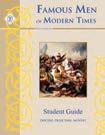
Year 6 e Aeneid and e Book of the Ancient Romans


Year 7 Greek Tragedies (Euripides, Sophocles, Aeschylus)
Year 8 e Divine Comedy
$42.30 set (text, student, teacher) Grades 6-8
Text $18.50 | eBook $14.00
Student $18.95 | Teacher $18.95
And in the last installment of the series, join Suleiman the Magni cent, Sir Isaac Newton, Peter the Great, George Washington, Napoleon Bonaparte, and many more as they ght to lead and forge the emerging modern world.


Grades 6+ | $45.12 set ea. (text, student, teacher)
Text $18.50 ea. | *eBook $14.00 ea. | Student $18.95 ea. | Teacher $18.95 ea. (*not available for Renaissance & Reformation)

Combine with a Memoria Press Student Guide for a yearlong course. Each guide includes facts to know, vocabulary, comprehension questions, mapwork, and timelines, and the Teacher Guides provide thorough answers as well as unit tests.



Let Dorothy Mills take your student on an adventure to explore the geography, culture, architecture, and most prominent peoples of Egypt, Persia, Anatolia, Israel, and more. Mills covers not only the valuable history and culture of the ancient peoples, but she also gives students an understanding of the people and neighbors out of which Christianity sprung.


The journey continues, starting in Crete and ending in the Hellenistic Age ushered in by Alexander the Great. Your student will learn about the wars and ideas, the art and architecture, the politics and philosophy that have shaped the course of Western civilization since the Greeks laid them out for us.



Like any good Roman course, this one begins with the she-wolf who nurses in infancy the legendary founders of Rome: Romulus and Remus. e rise and fall of a monarchy, the embrace of a republic with the simultaneous dislike for kings, and nally the rise of the Roman Empire teach unforgettable principles about human nature and society. Includes notes on the Roman culture, political system, and religion.


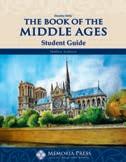

From the foundation of monasteries to the bell towers of universities, from the crowning of Charlemagne to the execution of Joan of Arc, Mills guides students through the spread of Christendom and the founding of a new civilization on the remnants of the Roman Empire.
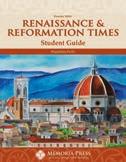


It would be hard to overstate the reverberating e ects of this period on modern history. Politics, philosophy, art, theology—virtually no aspect of Western culture was left unchanged by the Renaissance and Reformation. Mills succeeds marvelously in giving readers a neutral ground on which to base their understanding of this time.
Events from Ancient to Modern Times
Grades 3-7 $45.74 set (sketchbook, handbook, wall cards, flashcards)
Timeline Composition & Sketchbook $10.95



Timeline Handbook $10.95 Timeline Wall Cards $14.95 Timeline Flashcards $13.95



Students will master a total of 60 events from Greek and Roman history, the Middle Ages, American history, and Christian studies.
Grade 7 Worksheets $8.50 Key $8.50
To ensure retention and mastery we have created this cumulative review of Memoria Press' States and Capitals , Geography I & II, and Timeline Program



Large Wall Maps (22'' x 34'') $35.00
Small Wall Maps (11'' x 17'') $20.00


Large Wall Maps (22'' x 34'') $35.00
Wall Maps (11'' x 17'') $20.00


by Olivia Coolidge | Grades 6-8
Text $8.99 | Student $12.95 | Teacher $12.95
is faithful retelling of the events of the Trojan War is wonderful preparation for reading the Iliad and Odyssey in later years. Your student will become familiar with the main characters, the gods and goddesses, and the storyline of Homer's Iliad and Odyssey, presented in simple but captivating prose. Each lesson in the Student Guide has reading notes, vocabulary, comprehension questions, and an enrichment section with discussion topics, writing, art, and mapwork.






by Padraic Colum | Grades 6-8 | $11.00
Padraic Colum introduces young readers to Odysseus, the Greek hero of the Trojan War, who has been away from his home and his family for twenty years.
e Adventures of Odysseus & e Tale of Troy has all the essentials of Homer’s epic: the son, Telemachus, searching for news of his father and learning about the events of the Trojan War; the faithful wife, Penelope, refusing to marry again despite a throng of suitors; and Odysseus himself, struggling against monsters, storms, and the wrath of gods to be reunited with his family and regain his place as king of Ithaka.


by Alfred J. Church | Grades 6-8 $11.00
Alfred Church's retelling of Virgil's Aeneid is a great introduction to the story of Aeneas, who escaped from the burning city of Troy and founded Rome, the New Troy. Reading this rst will help prepare students to tackle the more di cult writing of Virgil.



Samuel Butler translation | Grades 7+ $93.95 set ea. (text, student, teacher, videos) $168.14 complete set (Iliad and Odyssey sets)
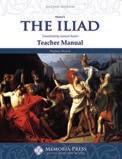

Text $14.00 ea. | eBook $7.00 ea.
Student $12.95 ea. | Teacher $16.95 ea.
Instructional Videos: DVDs or Streaming $55.00 ea.


Western civilization begins with the two greatest works of the ancient world: the Iliad and the Odyssey . The enormous influence these books have exerted in Western literature and art make them the perfect place to begin your study of Western culture. Samuel Butler's prose translations are both scholarly and easily accessible to students. The reading notes, focus passages, and comprehension and discussion questions in our Student Guides highlight important events, characters, and themes, allowing your student to more deeply understand these seminal works. The Teacher Manuals include additional contextual background information and teaching tips, as well as complete answers to the Student Guides and unit tests.

David West translation | Grades 8+ $92.57 set (text, student, teacher, videos)
Text $16.00
Student $18.95 Teacher $18.95
Instructional Videos: DVDs or Streaming $55.00
After Homer, the Aeneid is logically your next great book to study. Virgil's epic story of the founding of Rome will come alive when read with the help of our study guide as you continue your quest to master the classics. is is a great preparation for AP Latin also. Our Teacher Manual has inset student pages with teacher notes and background information for each lesson.
by omas Babington Macaulay | Grades 6+ $35.54 set (text, student, teacher, medal, pin)

Text $8.50 | Student $8.50 | Teacher $10.95 Medal $5.50 | Lapel Pin $3.95
is study of Macaulay's 70-stanza ballad includes vocabulary, maps, character and plot synopses, meter, comprehension questions, teaching guidelines, and quizzes. Send us a recording of your students reciting the poem, and we'll send them a Winston Churchill Award certi cate, medal, and lapel pin.
by Dante Alighieri, John Ciardi translation
Grades 10+ $61.18 set (text, student, teacher, quizzes & tests) $113.43 complete set (all books + streaming videos)
Text $21.00 | Student $18.95 Teacher $18.95 | Quizzes & Tests $5.50 Streaming Instructional Videos $55.00
e Divine Comedy is one of the crown jewels of both Western and Christian literature. is epic, allegorical poem illustrates Dante's spiritual journey of redemption that takes him through the pit of Hell (the Inferno) to the Beati c Vision of God (the Paradiso).




Grades 9+ $230.16 complete set (3 texts, 3 student guides, 3 teacher guides, 3 instructional videos)
e Oresteian Trilogy by Aeschylus $13.00 e ree eban Plays by Sophocles $15.00 Medea & Other Plays by Euripides $11.00














Student $18.95 ea. | Teacher $18.95 ea. Instructional Videos: DVDs or Streaming $45.00 ea.
by Cicero, P. G. Walsh translation Grades 10+ Text $13.95 Student $18.95 Teacher $18.95 Cicero's work On Obligations played a large role in Western Christendom but is daunting to read alone. Let us accompany your high schooler as he learns the principles of justice, wisdom, bene cence, courage, and propriety.





by Cicero, Niall Rudd translation Grades 10+ Text $12.95 Student $18.95 Teacher $18.95 e Republic became the blueprint of the U.S. government almost 2,000 years after it was written. In e Laws, Cicero defends his understanding of the upright moral life. His writings became the foundation for the West's philosophical discussion on the natural law.
Aeschylus was the rst of the three great tragic playwrights. Join Orestes as he seeks to avenge his father's murder, but discovers, along with us, that revenge only begets revenge—that mercy and litigation are the better ends of justice.
Here is Sophocles' story of Oedipus, fated to unknowingly kill his father and marry his mother. is is the great myth, in uencing all subsequent literature. Fate, free will, the quest for knowledge and truth—the glory and downfall of Western civilization.
Euripides further developed the tragedy, instituting the deus ex machina, a prologue, and greater realism. His heroes are less resolute and more psychological, fraught with internal con ict. In them we see the extremes of human nature: cold reason and maniacal passion, nobility and cruelty, triumph and regret, grief and comfort.
 BY LEIGH LOWE
BY LEIGH LOWE
InAesop's well-known fable, "The Ant and the Grasshopper," the lazy Grasshopper fails to prepare for the future, choosing instead to sing away autumn days in the sun. The industrious Ant, by contrast, works hard collecting grain and preparing for the upcoming winter. The story tells us that when winter finally comes, the hungry Grasshopper begs the well-prepared Ant for food but ends up disappointed when his request is refused and he must suffer the consequence of his choice.
Since nursery school we have been taught to celebrate the conscientious Ant and condemn the myopic Grasshopper in this story. As thoroughly modern Americans we know that it is foolish to be ill-prepared; we are supposed to work hard gathering provisions, skills, and tools that will serve us practically in the future. Pragmatism is the very air we breathe. We're supposed to root for the perfectly practical Ant.
But maybe we've been celebrating the wrong bug. Maybe the Grasshopper is actually a better classical hero? Perhaps the instrumental insect deserves a pardon?

A little knowledge about the twelve-month lifecycle of grasshoppers gives us a fresh perspective on Aesop's fable. An important fact about grasshoppers is that they are not made for winter at all. By God's


Leigh Lowe consults on curriculum, trains teachers, and speaks publicly about classical education and the vision of Memoria Press and Highlands Latin School. Leigh is the daughter-in-law of Cheryl Lowe, founder of Memoria Press and Highlands Latin School. Leigh worked closely with Cheryl for years as a teacher, editor, and writer.
design, they naturally die in late fall. It is not necessary for them to prepare for the upcoming winter because it is a season they will not see. Instead of gathering futilely, the grasshopper, in the full maturity of its fi nal days, graces the world with song.
We've long been trained to exalt that very pragmatic Ant, but isn't it possible that the Grasshopper honors its nature and fulfills its purpose just as beautifully? The pragmatist doesn't appreciate the six-legged songsmith; he condemns the Grasshopper as an idler because he misunderstands the insect's End.
Pragmatism, the hard-nosed, hard-working philosophy so characteristic of the practical modern misunderstands our End as Christians, too.
Pragmatism can lead us to prepare for seasons that will never come and destinations that are not meant for us. Its engine is fear, not faith. Rather than leaving space for God's providence, Pragmatism presumes that we can predict what God intends for our earthly futures. And it scares us into forgetting our ultimate Home, where the size of our stockpiles matters not at all. As champions of classical education we understand our purpose and place differently.
When Pragmatism influences education, we give higher value to specialization and vocational training than we do to broad knowledge and wisdom, which prepare us to answer God's unexpected calls. When we pursue only what is "practical"—chasing prosperity—we focus on developing skills to the exclusion of virtues. And when we strive only for





material comfort and security, we misunderstand where our ultimate Home truly lies.
Pragmatic ideology causes earnest and committed parents and teachers to worry about their students: What will they ever do with a classical education? Why should they study languages that no one even speaks? What kind of job will they get if they study ancient books? How will they make money? Why read classical literature instead of just learning a STEM skill?
C. S. Lewis, classicist and devout Christian apologist, helps us answer these questions. Lewis, recognizing Pragmatism as the temptress that she is, suggests that this brand of worldliness is a subtle snare of the Devil. In The Screwtape Letters, Screwtape, a junior demon, explains that
Prosperity knits a man to the World. He feels that he is "finding his place in it," while really it is finding its place in him. His increasing reputation, his widening circle of acquaintances, his sense of importance, the growing pressure of absorbing and agreeable work, build up in him a sense of being really at home in earth, which is just what we want.
Lewis routinely takes swipes like this at Pragmatism. But he also acknowledges that even when we pursue Truth, Goodness, and Beauty as priorities, it's easy for practicalities to commandeer our time and distance us from those we love—our people and our God. Lewis seems to understand how, unconsciously, life can descend from a love song to a laundry list.
Lewis points out in The Four Loves that
Lewis, for his part, reminds us to keep first things first every chance he gets. And he begins his lessons early for young readers in The Chronicles of Narnia In the series, Lewis persistently rejects Pragmatism and, for good measure, characterizes several villains in his canon—explicitly—as practical. Before his transformation, Eustace Scrubb in The Voyage of the Dawn Treader is repeatedly described in this way. He reads "all the wrong books" and can offer all sorts of factual explanations—but mostly for the purpose of explaining away beauty or goodness. In The Horse and His Boy, the untruthful Fisherman Father speaks in efficient and applicable maxims, not Narnian poetry and song, for "he had a practical mind." Uncle Andrew, the self-interested magician in The Magician's Nephew, is cowardly, arrogant, and self-serving. He too is described as "dreadfully practical." He develops his "craft" only for personal gain and exults, foremost, in the commercial and financial viability of the worlds he and the children discover. Finally, in The Lion, the Witch and the Wardrobe, Jadis the White Witch is the supreme villain of Narnia and, again, is painted with similar strokes:
SPRING 2023
The Development of Political Theory: Man in Society
Natural Philosophy and Modern Science Greek Drama: The Theater of Humanity
The English Novel: The Meaning and Purpose of Literature
More classes at MemoriaCollege.org
… it is the practical and prudential cares of this world, and even the smallest and most prosaic of those cares, that are the great distraction. The gnat-like cloud of petty anxieties and decisions about the conduct of the next hour have interfered with my prayers more often than any passion or appetite whatever.
We relate. But, no sooner than we vow to refocus, we dismiss the romantic notion that it's possible to deemphasize the daily duties of life. Of course, we must be practical, to some extent. The problem, however, is that if we relent entirely to practicalities, what begins as distraction can end in disaster. Failing to lift our hearts and minds out of the workaday world where we earn profits and praise tempts us to forget the Great Reward.
… [M]ost witches are like that. They are not interested in things or people unless they can use them; they are terribly practical.
Classical Christian education seeks to create, not pragmatists, but "new men," people who are humble, selfsacrificing, and who put their faith in a dependable God. It is an education that pursues heavenly things before worldly things and values not just results, but development. It exalts the journey toward the True, the Good, and the Beautiful, and realizes that they aren't fully attainable on earth. Like The Dawn Treader, classical Christian education is a vessel that seeks to carry its students forward on a great journey to noble things and, hopefully, and most importantly, to Aslan's country itself. And to those who question the "use" of such a journey, the supremely knightly Reepicheep responds:
Use? Use, Captain? If by use you mean filling our bellies or our purses, I confess it will be no use at all. So far as I know we do not set sail to look for things useful but to seek honor and adventure. And [the voyage to Narnia] is as great an adventure as I have heard of.

by David Bentley Hart
Grades 8+
Text $16.99
Student $18.95
Teacher $18.95
Hart gives a scholarly but readable portrait of the rich history of the Christian Church, covering 2,000 years of persecution, belief, discord, and faith. Our study guide walks you through Hart's text with additional background and contextual information, comprehension questions, and discussion questions that tie the history to scriptural passages and explore modern-day issues of faith and belief.



Grades 8+
Text $11.00
Student $17.50
Teacher $18.95
e Acts of the Apostles tells the exciting story of the travels, the teachings, and—in many cases—the martyrdoms of the apostles as they take the message of Jesus Christ from Jerusalem to the ends of the earth in the years immediately following Christ's life, death, and resurrection. is unit study will acquaint students with Christianity's infant stage.





by Josephus | Grades 9+
Text $11.00
Student $17.50
Teacher $19.95
" ere will not be left a stone upon a stone." Our children may know of Christ's prophecy, but do they learn about its ful llment? Josephus is regarded as the most trustworthy source on the destruction of Jerusalem in 70 A.D. is follow-up to a study of Scripture is an introduction to the history of Christianity.

Christian Studies I-III
Grades 3-6
Christian Studies I: All Major Bible Stories up to the Entry into Canaan Christian Studies II: e Rise and Fall of Israel and the Period of the Prophets
Christian Studies III: All Major New Testament Stories $168.83 set








(Christian Studies I-III student & teacher, Golden Children's Bible, New Testament, Old Testament, and Memory Verse Flashcards) Student $18.95 ea. | Teacher $21.95 ea. | Golden Children's Bible $19.99 Memory Verse Flashcards $16.95 | Old Testament Flashcards $13.95 | New Testament Flashcards $13.95







Biblical literacy is just as important as cultural, moral, and functional literacy, and the material we use to teach children their faith should be just as rigorous and demanding as any other important subject. Our Christian Studies series is a systematic study of the major events and characters in Salvation History, using e Golden Children's Bible. Students work through a Bible timeline from Creation to Christ, memorize Bible geography, the books of the Bible, people and events in order, and discuss vocabulary and basic theological concepts common to all Christian faith traditions. At the end of this course your student will be thoroughly grounded in the knowledge necessary for advanced Christian studies. Each lesson in the Student Guide includes facts to know, a memory verse, comprehension questions, and geography and timeline activities. e Teacher Manual contains thorough answers and additional insights and background information for each lesson, as well as unit tests.
Grades K-2
e Story Bible $29.99 Christian Studies Enrichment $13.95

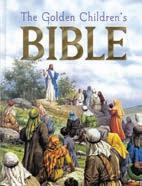

e Story Bible is written especially for children who are beginning to read. e enrichment guide helps facilitate oral discussion for each Bible lesson.
Grades 3-6 $19.99
We chose this Bible to use with our Christian Studies I-III series for its simpli ed but poetically appealing King James text and beautiful illustrations. e stories are broken into small, digestible chunks, and written on a third-sixth grade reading level.
Grades 6-8
Text $13.00 Student $18.95 Teacher $21.95 is course takes students back through the highlights of the Bible, and reviews drill questions, memory passages, and more! It can serve as a review course for Christian Studies I-III or as a survey study of the Bible. Our text gives students an overview and background information for each book of the Bible.
Grades 9+
Student $18.95
Teacher $21.95
e Early Church $18.00
e History of the Church $19.00


Eusebius, the bishop of Caesarea, wrote the rst book to recount the struggles and victories of the rst followers of Christ. In this year-long course, Chadwick's e Early Church is used as the main text, and students are directed to Eusebius' e History of the Church when ancient testimony is appropriate.
City of God by St. Augustine, Vernon J. Bourke ed. Grades 10+

Text $19.00 Student $18.95 Teacher $19.95 Quizzes & Tests $5.50
City of God , arguably Augustine's greatest book, is the source of some of Western society's greatest and most cherished beliefs. Augustine's book serves as the cultural fountainhead of all that followed, and it is unlikely that it will ever be equaled. e Teacher Guide contains helpful chapter summaries and an answer key for the Student Guide



A comment from Anne of Green Gables struck me many years ago. e author says students spend so much time in Tennyson's Idylls of the King that the characters come alive for the students and they live in Camelot. Maybe it is unrealistic, but that is always my goal for a piece of literature. If Agamemnon, Achilles, Nestor, Hector, and Odysseus become living people to students, and if they weep when Priam comes to beg for the body of Hector, that is the highest success for the teacher. e study of human character types is one of the great bene ts and interests of literature.


Kindergarten Read-Aloud Set pictured. For a complete list of books in each set, visit MemoriaPress.com.
Choose from:
•Jr. Kindergarten Read-Aloud $340.58
•Kindergarten Read-Aloud $369.54
•Kindergarten Science & Enrichment $358.56
•First Grade Read-Aloud $379.46
•First Grade Science & Enrichment $264.51
•Second Grade Read-Aloud $362.55
•Second Grade Science & Enrichment $195.64
• ird Grade Read-Aloud Novels $185.82

• ird Grade Read-Aloud Picture Books $343.71
• ird Grade American $139.73
To complete the Literature & Enrichment portion of the K-2 curriculum, you will need the weekly read-alouds. You may already own many of these classic books, but you can also gather them at the library or purchase them from us. We schedule Literature ReadAlouds and American Studies Read-Alouds for older students in our 3rd-6th grade Curriculum Manuals. ese grammar school sets are supplemental as time and interest permit.
Streaming Audio:
•Prima Latina •Latina Christiana •Latin Forms Series •Latin Recitation •Lingua Angelica
•Music Appreciation •First Start French I & II •Elementary Greek I-III •Greek Forms Series
Streaming Video: •Classical Composition
Logic I & II
Logic
Rhetoric
Latina
Christiana
Form Latin
Form Latin
ird Form Latin •Fourth Form Latin
Form Greek •Henle Latin First Year
•Latin Recitation
Greek Tragedies
Comedy
•Fourth Grade Read-Aloud $139.70
•Fourth Grade American $81.90
•Fifth Grade Read-Aloud $104.83
•Fifth Grade American $64.88
•Sixth Grade Read-Aloud $84.41
•Sixth Grade American $58.90
I
II
Phonics & Reading
A Classical History of Art
Our Streaming Instructional Videos are a digital alternative to physical DVDs, and require only a device (computer, phone, tablet) with internet access. ey include the same thorough and engaging teacher instruction as our DVDs. Purchase of a subscription gives you LIFETIME ACCESS to the videos!
Stream today at MemoriaPress.com/streaming
Don't need an entire package?
Lesson Plans by Subject
- $16.00 per subject Memoria Press' lesson plans by subject allow you to tailor the Classical Core Curriculum to your own needs. ese plans retain our week-at-a-glance layout, scheduling the individual subjects of each grade so you can mix and match as you need.
Latin Forms Series
Literature
Classical Studies
Kindergarten Phonics
Christian Studies
Geography
Math & Science
AND MORE!
e Classical Core Curriculum is a complete classical Christian curriculum that emphasizes the traditional liberal arts of language and mathematics and the cultural heritage of the Christian West as expressed in the great works of history and literature. e curriculum has an early focus on the basic skills of reading, writing, and arithmetic, and a special emphasis on Latin. Latin is the best way to gain an academic vocabulary and to learn the formal system of grammar, and is, along with math, the best early critical thinking skills training. e study of the cultures of Athens and Rome, as well as biblical and Church history, is designed to provide a basis for a proper understanding of European and American history.
$220.09 Full Set (all books + Curriculum Manual)
$30 Curriculum Manual Only
• Preschool Curriculum Manual


• Prayers for Children
• Jesus Is With Me

• Jesus Hears Me

• Jesus Knows Me
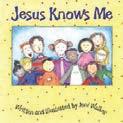
• Big Red Barn

• e Best Mouse Cookie

• Little Fur Family
• Bunny's Noisy Book

• From Head to Toe
• Goodnight Moon

• Polar Bear, Polar Bear, What Do You Hear?

• Brown Bear, Brown Bear, What Do You See?
• Numbers, Colors, Shapes




$149.49 Full Set (all books + 2-Day Curriculum Manual)
$64.69 Consumable Books Set (for additional students)
$30 Curriculum Manual Only
$340.58 Supplemental Read-Aloud Program
Character Building Supplements: Myself & Others Book I Core Set $57.86
Myself & Others Book II Core Set $22.45
• Jr. Kindergarten Curriculum Manual


• Counting With Numbers
• Numbers & Colors
• Prayers for Children

• Alphabet Books 1 & 2



• Numbers Coloring Book



• Alphabet Coloring Book



• Alphabet Flashcards



• Alphabet Manuscript Wall Charts

• Richard Scarry's Best Mother


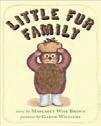
Goose Ever

• Big oughts for Little People (Devotional)

• Hailstones and Halibut Bones (Poetry)

• e Book of Crafts: Jr. Kindergarten


• My Very Own Scissors Book

• e Very Busy Spider

• Good Night, Gorilla


• e Tale of Peter Rabbit

• Fuzzy Yellow Ducklings

• My Very First Book of Shapes

• ABC: An Amazing Alphabet Book!


• Put Me in the Zoo
• Hand, Hand, Fingers, umb

• Cars and Trucks From A to Z
• My First Counting Book
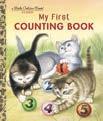
• e Animals' Christmas Eve
• Big Dog ... Little Dog

• Mr. Brown Can Moo! Can You?

• A Children's Treasury of Nursery Rhymes
• 1 Is One
5-Day Junior Kindergarten Curriculum now available! | $217.75
Check out the book list: MemoriaPress.com/JK-5
Curriculum prices valid as of printing. Subject to change.


















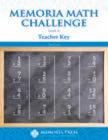










































































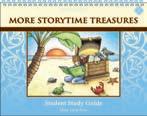
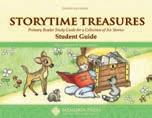
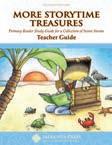




















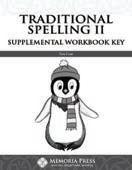

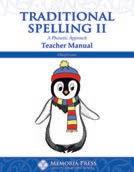




















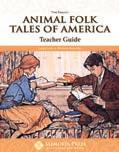




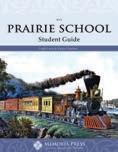













































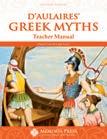
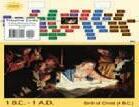














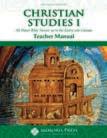















































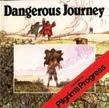






















Alphabet Books; Alphabet Flashcards; Alphabet Coloring Book (p. 72); My Very Own Scissors Book (p. 71); Manuscript Charts (p. 79)



















Counting
Kindergarten Phonics Supplemental Workbook; Classical Phonics; First Start Reading A-D; 100 Days of Summer Reading I; Phonics Flashcards (p. 74); Animal Alphabet Coloring Book; American Language Readers; Nature Reader K







Traditional Spelling I (p. 75); StoryTime and More StoryTime Treasures Literature Sets (p. 14); 100 Days of Summer Reading II; First Start Reading Book E (p. 74)





























Traditional Spelling II (p. 75); 100 Days of Summer Reading III (p. 74); Second Grade Literature Set (p. 14) Traditional
Latina (p. 4)
Rod
Rod
New American Cursive 2 (p. 78); Copybook Cursive I; Composition & Sketchbook II (p. 79); Prima Latina Copybook (p. 8); Penmanship Tablet




















Stories of Great Americans for Little Americans (p. 63)






Traditional Spelling III (p. 75); Third Grade Literature Set (p. 15); Poetry for the Grammar Stage (p. 22)

















Spelling Workout E; Fourth Grade Literature Set (p. 15); Poetry for the Grammar Stage (p. 22)



Spelling Workout F; Fifth Grade Literature Set (p. 16); Poetry for the Grammar Stage (p. 22)











Spelling Workout G; Sixth Grade Literature Set (p. 16); Poetry for the Grammar Stage (p. 22)


































Classical
Classical
Classical



















































































at the conventions listed below and explore our award-winning curriculum.
Great Homeschool Conventions - St. Charles, MO March 16-18
Great Homeschool Conventions - Greenville, SC March 30-April 1
Great Homeschool Conventions - Cincinnati, OH April 13-15
Kansas Homeschool Expo - Wichita, KS April 28-29

Minnesota Association of Christian Home Educators - Rochester, MN May 19-20


Florida Parent Educators Association - Orlando, FL May 25-28
Home Educators Association of Virginia - Richmond, VA June 8-10


Society for Classical Learning - Dallas, TX June 14-17




Great Homeschool Conventions - Ontario, CA June 15-17
Rocky Mountain Homeschool Conference - Denver, CO June 13-17




Association of Classical Christian Schools - Pittsburgh, PA June 22-24














Great Homeschool Conventions - Round Rock, TX July 6-8
Memoria Press Conference - Louisville, KY July 10-14
Southeast Homeschool Expo - Atlanta, GA July 28-29
e Memoria Press team loves hitting the road and meeting our customers face to face! Come visit us










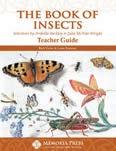
























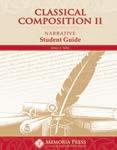
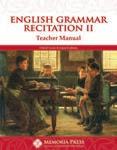















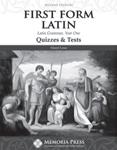













































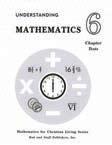

























































































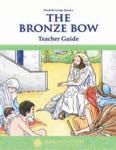





































































































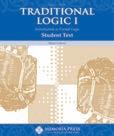


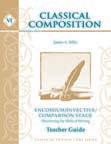






























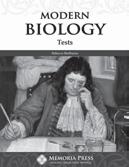










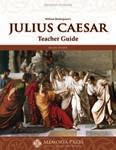



































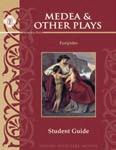























 BY MARTIN COTHRAN
BY MARTIN COTHRAN
Not long after George Lucas' Star Wars movies came out, it became widely known that he had used the classic myths as a grounding for the stories in his films. Lucas later acknowledged that he had been influenced by the writings of Joseph Campbell, an American professor whose most famous work, The Hero With a Thousand Faces, argued that there is one central story structure behind all classical hero tales and myths, which he called the Monomyth.
The Monomyth is a sort of narrative pattern in which there are discernable stages in the life of a hero, and Campbell maintains it is common to all great hero stories. Novelists, filmmakers, songwriters, and video game creators have confessed to having been influenced by Campbell's idea of the Monomyth in creating their works. His theory has attracted many critics since the publication of The Hero With a Thousand Faces in 1949, and yet his observations will sound familiar to anyone versed in stories, classical and modern alike.
• The birth of a hero is often miraculous, frequently taking the form of a divine parent. Romulus, the legendary first king of Rome, is said to have been sired by Mars, the god of war.
• There is often an initiation of some kind, involving tokens of the hero's paternity. Theseus is guided by his mother to the rock under which his father has left his sandals and his sword.
• Such stories frequently have the hero withdrawing from the world and preparing for greatness. Jason (of Jason and the Argonauts) is sent to the centaur Chiron (the teacher of Achilles), who teaches him how to ride, hunt, and play music.
• The hero must undergo a trial or quest. In penance for a great misdeed, Hercules is ordered by the Oracle at Delphi to serve King Eurystheus, who requires the hero to undergo the twelve labors for which he is famous.
• The hero also must undergo some sort of death, which casts him into the underworld, from which he rises again and then finally e periences an ascension apotheosis or atonement. In the final and greatest trial of Gandalf the Grey in The Fellowship of the Ring, he faces the Balrog, who, falling into the abyss, pulls the wizard down with him, seemingly to his death. And yet, later in the story the three hunters are approached by a cloaked figure who reveals himself in an exalted form as Gandalf the White.
Some version of these heroic patterns is reprised in the myth and folklore of every civilization in history, from primitive tribes to modern popular literature and film: divine births, initiations, preparations, resurrections, and apotheoses.
Martin Cothran is the editor of The Classical Teacher and author of Traditional Logic Books I II, Material Logic, and Classical Rhetoric
They are there in the Egyptian story of Osiris— and in C. S. Lewis' The Chronicles of Narnia. They are there in Star Wars—and they are on full display in the Christian story.
Campbell himself takes note of this. The Virgin Birth of Christ, His childhood spent in learning from the rabbis, His Baptism, the withdrawal into the desert, the tempting by Satan, the Crucifixion, the Descent into Hell, and the Resurrection and Ascension into Heaven. These events form an almost perfect pattern of the Monomyth.
And so comes the question: Is Christianity merely another form of the Monomyth? Is it similar to all the other myths of the world, having been fashioned by storytellers and transformed by enthusiastic and naïve adherents into alleged history?
That was certainly Campbell's view, one mostly shared by other professional folklorists and cultural anthropologists. But there is another view, an older view. If we turn from the secular university scholars to the greatest of the early twentieth century writers who authored the works that became influential source material for more contemporary storytellers, we find an entirely different attitude.
What did writers such as G. K. Chesterton, J. R. R. Tolkien, and C. S. Lewis believe about the strange and uncanny correspondence between the Gospel story and the stories of antiquated myth?
Chesterton directly challenges the view that Christianity is just another myth in his famous newspaper debate with Robert Blatchford, the atheist publisher of The Clarion, published between 1903-1904. He turned the barrel of Blatchford's gun around on him:
Mr. Blatchford and his school point out that there are many myths parallel to the Christian story; that there were Pagan Christs, and Red Indian Incarnations, and Patagonian Crucifixions, for all I know or care. But does not Mr. Blatchford see the other side of the fact? If the Christian God really made the human race, would not the human race tend to rumours and perversions of the Christian God? If the centre of our life is a certain fact, would not people far from the centre have a muddled version of that fact? If we are so made that a Son of God must deliver us, is it odd that Patagonians should dream of a Son of God?
In other words, the fact that the narrative pattern of the Christian story is found throughout history is a confirmation, not a refutation, of its historical truth.
The story of a Christ is very common in legend and literature. So is the story of two lovers parted by
Fate. So is the story of two friends killing each other for a woman. But will it seriously be maintained that, because these two stories are common as legends, therefore no two friends were ever separated by love or no two lovers by circumstances? It is tolerably plain, surely, that these two stories are common because the situation is an intensely probable and human one, because our nature is so built as to make them almost inevitable.
Chesterton, who was often accused of overusing the literary device of paradox in his own writing, pointed to the paradox in Blatchford's argument:
The Blatchfordian position really amounts to this—that because a certain thing has impressed millions of different people as likely or necessary, therefore it cannot be true.
Chesterton believed that Christianity was the "fulfillment of paganism"—that what the pagans knew intuitively, what they imaginatively searched for in their stories and myths, was what Christianity delivered. The mythical stories were simply imperfect attempts—through the flawed instrument of the human imagination—to try to grasp the fundamental archetypes at the core of reality, archetypes that spoke of a God coming to earth and ascending into heaven, taking the paradoxical form of a baby in a manger:
The Child that was ere worlds begun (… We need but walk a little way, We need but see a latch undone, …) The Child that played with moon and sun Is playing with a little hay.
—G. K. Chesterton, "The Wise Men"

Lewis believed that man's two central insights into the reality of the world were the intellect and the imagination. The intellect, he said, was the organ of reason, and the imagination, the organ of meaning. He was a passionate rationalist, versed in the ways of argument, but was also intimately familiar with the classical and Norse mythologies in which he saw a glorious significance. But he came to a juncture: He saw the imaginative appeal of Christianity, but he could not reconcile it with the
rational requirement of historical truth. It was just another myth, albeit a great one.
His friend Tolkien thought quite differently. In his essay "On Faerie Stories," Tolkien coins the term "eucatastrophe"—the unlikely turn in a fairy tale that produces the surprise happy ending. We can see it in Tolkien's own writing when the evil Gollum steals the ring from Frodo just as Frodo has decided not to destroy it and to keep it for himself. Gollum, entirely unwittingly, falls into the consuming fire of Mount Doom, clutching the Ring and unintentionally destroying it. It is the bad ending suddenly turned into the good ending. It is of the same form as the Christian eucatastrophe, which is eucatastrophe in its highest form: the "defeat" of Christ at the Crucifixion that turns into the victory of the Resurrection. And it is a turn that is made even more perfect by the fact that it is true.
Lewis later was convinced, after Tolkien explained to him on a walk along the River Cherwell at Oxford, that Christianity not only has all the meaning of the mythologies (of which fairy tales are a type), but all the truth of reality. Christianity is the true myth. The Christian story, he argues, "is supreme; and it is true. Art has been verified. God is the Lord, of angels, and of men—and of elves. Legend and History have met and fused."
In the writings of all the Inklings—the Oxford writers influenced by Chesterton such as Lewis, Tolkien, and Charles Williams—there is an implicit proposition: The Christian story isn't merely one more instantiation of the Monomyth—it is, in fact, the Monomyth itself. Christianity is not just another story fashioned from some central pattern, but rather is itself the central pattern from which all other stories are made.
States and Capitals

$37.67 set
(text, student, teacher, flashcards)
Grades 3-6 Text $7.99 Student $13.95 Teacher $13.95 Flashcards $5.95

By the end of this course students will be able to map all 50 states and capitals. We recommend that this guide be used with Don't Know Much About the 50 States






Grades 4+ $74.54 set
(text, student, teacher, and flashcards + U.S. Review student and teacher)
Geography I Text $16.95 | Geography I Student $14.95
Geography I Teacher $15.95 | U.S. Review Student $5.50
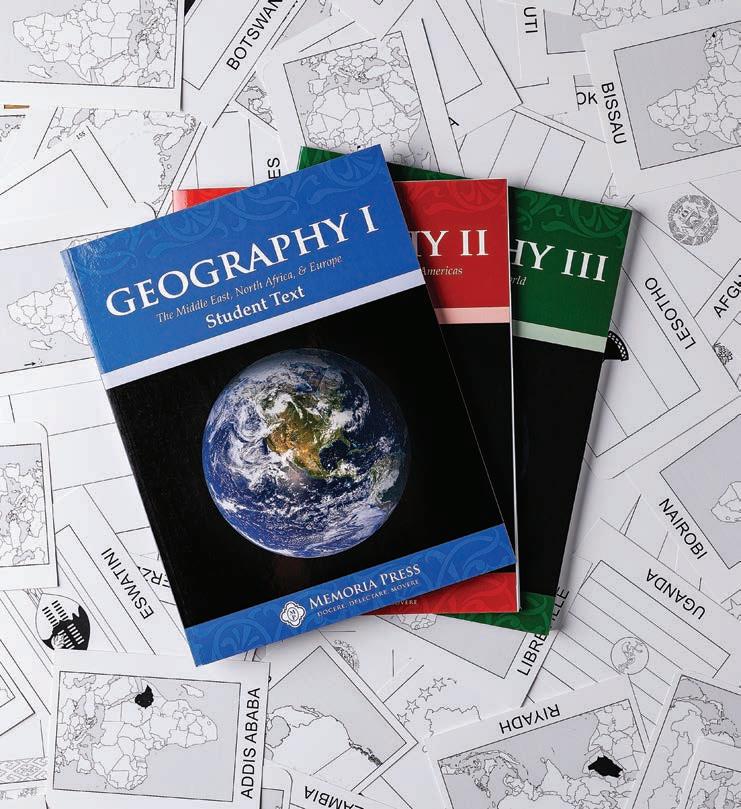



U.S. Review Teacher $8.50 | Geography Flashcards $20.95

A unique geography program designed for students pursuing a classical Christian education, this course covers the area that constituted the ancient Roman Empire and the geography relevant to the Bible. Each region is explored in its historical context, providing interesting and thought-provoking facts, but the main goal of this course is for students to learn to map the countries and their capitals.

Grades 7+ $82.23 set
(text, student, teacher, classroom atlas, flashcards*)

Text $18.50 | Student $19.95
Teacher $19.95 | Atlas $12.00

*Geography Flashcards $20.95
*same as flashcards in Geography I set

Grades 5+ $55.68 set
(text, student, teacher + Geography I Review student & teacher) Geography II Text $16.95 Geography II Student $14.95 Geography II Teacher $15.95 Geography I Review Student $5.50 Geography I Review Teacher $8.50

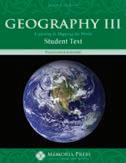






is more advanced geography course solidi es the mapping skills learned in Geography I-II but adds a study of the landforms, topography, famous landmarks, climate, culture, and religion of each continent. is is a perfect prelude to high school history.
Students continue to deepen their understanding of past and present as they learn to map the rest of the countries and capitals not covered in Geography I. At the end of this course, students will have mapped the entire world.

Practice Map Pad: United States notepad of 50 two-sided sheets (11" x 17") | $10.95






Grades 5-8
Student $8.50 | Teacher $5.50 is is a valuable tool for helping students learn to study well. Use this in conjunction with e Story of the irteen Colonies & the Great Republic and e Story of the World, Vol. 4 to teach students how to recognize, organize, and retain key pieces of information from what they read.



$53.58 set (text, student, teacher)
Grades 5-8
Text $18.50 | Student $18.95 | Teacher $18.95
We have combined Guerber's e Story of the irteen Colonies and e Story of the Great Republic into one edited volume that makes for a perfect one-year survey of American history in the middle school years. e guide includes important facts, vocabulary, and comprehension questions, as well as enrichment activities such as mapwork, drawings, research, writing assignments, and more!





Grades 5-8
Student $10.95 | Teacher $5.50 Flashcards $13.50
Compiled from e Story of the irteen Colonies & the Great Republic and e Story of the World, Vol. 4. e Flashcards are based on our study guide, but can be used with any good American history course.


Year I: $238.34 set (text, student, teacher) | Year II: $35.90 set (student, teacher) Grades 9+
Text $214.99 (used for Year I and Year II) Year I Student $17.95 | Year I Teacher $17.95 | Year II Student $17.95 | Year II Teacher $17.95 is two-year course is designed to give students a good understanding of the period of history from pre-1615 life in North America to the post-Civil War Reconstruction years (Year One) and the period between the end of Reconstruction to the Reagan years (Year Two). Our guides provide reading notes for each chapter, as well as comprehension questions that help students focus on the most important information from each chapter.







$44.47 guide set (student, teacher, quizzes & tests)
Grades 10+
Student $20.95 | Teacher $22.95
Quizzes & Tests $5.50
Vol. I & Vol. II Text $150.00 ea.
is course covers the political, societal, and religious upheavals, particularly in Western Europe, that have shaped and reshaped the continent in the last seven hundred years. Students will study events leading to the rise of Europe through the formation of contemporary Europe, including the French Revolution, Napoleonic Europe, World War I & II, and the Cold War. e texts include helpful maps, timelines, and illustrations. e Student Guide requires students to note Key Terms, Key Figures, Key Dates, and Key Structures, in addition to comprehension questions, short essay questions, and timeline and map activities. e Teacher Manual has answers to the Student Guide plus background information for the teacher, and an overview, summary, and conclusion for each lesson, focusing on the material students need to master.




From Constantine to Saint Louis
$104.73 set (text, student, teacher, quizzes & tests)
Grades 10+
Text $66.95 | Student $20.95 | Teacher $22.95 Quizzes & Tests $5.50 is course covers the tumultuous transformation of Europe in the Dark Ages and the High Middle Ages, from the barbarian invasions and the conversion of Constantine to the Crusades and the rise of feudalism. e study guide helps the student pull out key terms, gures, and events, and provides comprehension and short answer essay questions.





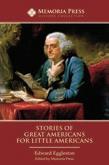 by Edward Eggleston
by Edward Eggleston
Grades 1-3 | $13.95






(third grade shown)
ird Grade $139.73 set | Fourth Grade $81.90 set
Fifth Grade $64.88 set | Sixth Grade $58.90 set




ird Grade $13.95 | Fourth Grade $13.95





Fifth Grade $13.95 | Sixth Grade $13.95

by Cheryl Lowe | Grades 3+
$23.34 set (student and teacher)
Student $16.50 | Teacher $10.95
Master the Greek alphabet, letter by letter, before tackling First Form Greek.



Christine Gatchell
An introduction to Greek grammar for younger students.



Grades 4-8
$72.70 Year One set (shown right)
(text, workbook, CD, flashcards, tests, teacher key)
Year I Text $15.00 | Year I Workbook $16.50
Year I Tests $5.50 | Year I Teacher Key $16.50 CD $9.50 | Flashcards $13.50



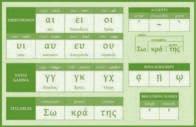

Wall Charts (left) 22" x 34" (2 charts) $13.95 | Desk Charts (right) 8.5" x 11" (2 charts) $9.50 Chart 1: the Greek alphabet Chart 2: diphthongs, accent marks, pronunciation helps, and syllable names

$71.75 Year Two set
(text, workbook, CD, flashcards, tests, teacher key)

Year II Text $15.00 | Year II Workbook $16.50


Year II Tests $5.50 | Year II Teacher Key $16.50 Streaming Audio $8.50 | Flashcards $13.50
$60.77 Year ree set
(text, workbook, CD, flashcards, tests)
Year III Text $18.95 | Year III Workbook $16.50 Year III Tests $5.50 | CD $9.50 Flashcards $13.50

First Form Greek: Introduction to Hellenistic Greek, Year 1
by Cheryl Lowe & Michael Simpson
Grades 7+
$131.78 complete set (all 5 books, CD, videos, flashcards) $71.16 basic set (all 5 books + CD)

Text $15.00 | Workbook $16.50 | Teacher Manual $12.95
Teacher Key $16.50 | Quizzes & Tests $5.50
CD $9.50 | Flashcards $15.95
Instructional Videos: DVDs or Streaming $55.00
First Form Greek is written for parents and teachers with or without a Greek background. Its goal is to present the grammar logically and systematically so that anyone can learn it.



· 6 pages of exercises in the Student Workbook give you ample practice for the 31 two-page lessons of the Student Text
· Weekly, reproducible Quizzes & Tests ensure the material is being mastered.

· e Pronunciation CD and Flashcards provide constant practice of grammar forms and vocabulary.


· e Teacher Manual and complete Teacher Key equip both the brand new and the veteran Greek instructor with everything needed to teach, including day-by-day lesson plans, oral drills, additional notes, and an answer key for all exercises and quizzes.



· Instructional Videos (DVDs or streaming) are also available, with superb 10-20 minute lessons given by Highlands Latin School teacher Elizabeth Pierce.
Second Form Greek: Introduction to Hellenistic Greek, Year 2 by Mitchell L. Holley





Grades 8+
$71.16 basic set (all 5 books + CD)
Text $15.00 Workbook $16.50 Teacher Manual $12.95
Teacher Key $16.50 Quizzes & Tests $5.50 CD $9.50 Flashcards $15.95
Instructional Videos: Coming Soon!
French
First Start French I: Introduction to the French Language

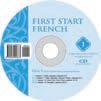
by Danielle Schultz
Grades 5-8 $48.50 set (student, teacher, CD) Student $19.50 Teacher $19.50 CD $9.50
Second Form Greek is the second year of our three-part Greek Forms Series. Continue your systematic study of Greek grammar with our clear, concise Student Text and ample practice exercises in the Student Workbook , including substantial translation exercises. Weekly Quizzes & Tests ensure retention of the material, and the Teacher Manual and Teacher Key provide lesson plans, additional notes, and a comprehensive answer key. e Pronunciation CD and Flashcards allow students to practice quick recall for mastery.




First Start French II: Introduction to the French Language by Danielle Schultz Grades 5-8 $48.50 set (student, teacher, CD) Student $19.50 Teacher $19.50 CD $9.50







with Dr. Carol Reynolds | Grades 8+ $170 set (Textbook, Student Workbook, DVDs, Teacher Manual download)
Textbook $39.95 | Student Workbook $29.95 | DVDs $106.10
Join Professor Carol as she travels the world using music as the window into political and cultural history. e expanded second edition includes a separate Textbook—now including art and additional information—and a Student Workbook—with more activities, questions, and timelines—which both still correspond perfectly to the rst edition DVDs.
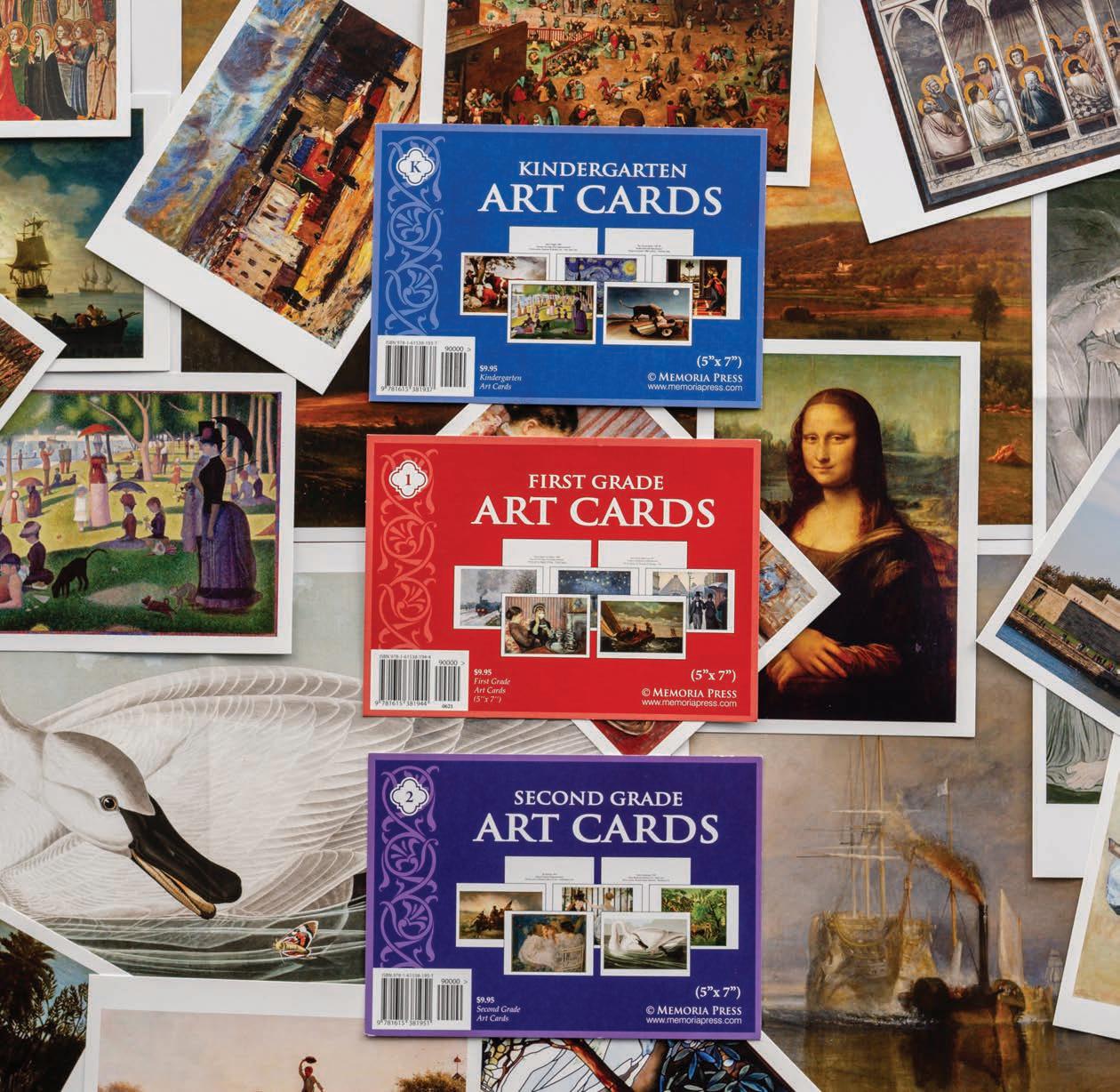
with Dr. Carol Reynolds Grades 5+ $49.95 set (2 DVDs totaling more than 4 hours) In this course, Professor Carol—along with 38 other historians, scholars, and artists—takes you on a journey through America's musical history. When we sing the songs our greatgrandparents learned around a camp re, read the poems they recited, and study the paintings or quilts they created, we visit the past in a tangible way.

Early Sacred Music: From the Temple through the Middle Ages with Dr. Carol Reynolds | Grades 8+

$119 set (text, workbook, DVDs)
Text $24.95 | Assignments & Quizzes $22.95

Here you will find a description and explanation of how Christians worshiped God in song for over a millennia. In addition to the sheer beauty of the songs themselves, you will learn how musical notation developed, who the great Christian composers were, and how historical circumstances affected the musical worship of the Church. DVDs include musical performances and Professor Carol's unparalleled commentary.
Grades 3-4
$21.95
Students will begin with color theory and basic art techniques. They will create projects that relate to literature, science, Mesopotamian and Egyptian art, portraits, landscapes, still life, and much more!

Grades K-2 Art Cards K-2 (5" x 7") $10.95 ea. Art Posters K-2 (11" x 17") $35.00 ea. Enrich your child's primary education with beautiful pieces of art from the most in uential artistic movements in history, including the Renaissance, Romanticism, Impressionism, and more!










are coordinated with our primary Classical









by Kyle M. Janke
Grades 9+ $93.48 set
(student, teacher, flashcards, instructional videos) Student $18.95 | Teacher $18.95 Flashcards $10.95
Streaming Instructional Videos $55.00
In A Classical History of Art, the timeless qualities of Greek expression inform a succinct and cohesive survey of 5,000 years of Western art. From the prehistoric period to the beginning of modern art, this study demonstrates the signi cance of classical values in the development of the sculpture, architecture, and painting of the West. Focused on cultivating fruitful and revelatory discussion, this curriculum presents the features, terms, and pertinent discussion questions of each major period, supplemented by close analysis of major works, lessons in visual composition, master copy drawing assignments, and 80 color ashcards. In the instructional videos, Kyle Janke walks your student through the course in twelve lessons, with lectures and thoughtful discussion points that complement and supplement the student text. For the educator, student, or curious individual, this course will produce the ardent and enlightening dialogue necessary to direct our interactions with great art.
by Patrick Fata | Grades 3+






Student Book $16.50 Audio Companion CD $9.50 is course aims to deepen your student's appreciation of music by grounding the greatest pieces in the canon of Western classical music in their historical context, and by introducing the foundational musical concepts of notation, rhythm, pitch, form, and melody to give a fuller understanding of the inner workings of the pieces and of music in general.



The dinner hour approached as our riverboat sailed up the Rhine. Passengers, dressed as requested in red or white, entered the ship's sleek dining room that was asparkle with crystal, china, and silver candelabras decked in clusters of tomatoes, purple grapes, and bunches of scallions. Alongside them perched baking potatoes, parsnips, and turnips, held up on tripods of silver forks!
So began the uproariously fun "Pasta-Opera"—a professional event built around an Italian menu and costumed singers performing hit tunes from classic operas. Passion-filled arias and comedic scenes alternated with the flavors of bruschetta, eggplant parmigiana, and tiramisu.
The dinner was long, filled with music and laughter. How would the cast bring this delightful evening to a finale, I wondered? The answer came when the sopranos intoned the opening phrase of "Va Pensiero," arguably the most beloved melody in the Western canon. Many guests joined in, rusty on the Italian words but enthusiastic in their singing. Those unfamiliar with "Va Pensiero" glanced around in slight confusion: What tune was causing eyes to sparkle and voices to raise?
"Va Pensiero" is the principal chorus from Giuseppe Verdi's opera Nabucco (1842), a drama about Babylonian King Nebuchadnezzar II that weaves together plot threads from Kings, Jeremiah, Lamentations, Daniel, and verses from the Psalms. This chorus opens the second scene of Act Three as the enslaved Hebrews, broken by the loss of the First Temple in 586 B.C., languish on the shores of the Euphrates, longing for their homeland.

At the original premiere, the audience exited the theater singing tunes from the opera, singularly ensuring it would be a success. Not much earlier, Verdi, in mourning over the death of his wife and two children, had sworn never to compose again. Yet he was still under contract to produce a new opera for La Scala. His friend and mentor Bartolomeo Merelli pushed the text for Nabucco into his hands and urged him to take it home. Verdi (according to his reminiscences) entered his flat, tossed it onto the table, and the pages opened to these words:
Va, pensiero, sull'ali dorate; va, ti posa sui clivi, sui colli, ove olezzano tepide e molli l'aure dolci del suolo natal!
Go, thought, on wings of gold; go settle upon the slopes and the hills, where, soft and mild, the sweet airs of our native land smell fragrant!
Dr. Carol Reynolds is a widely acclaimed author, speaker, and educator. She regularly leads arts tours throughout Europe and the Mediterranean, recently in partnership with the Smithsonian Institute.
Verdi was transfixed. A perfect melody arose in his mind. He penned the chorus quickly and, from it, the whole opera unfolded.
Whether or not Verdi's account is exaggerated, Nabucco brought about the composer's complete revival. The role he wrote for the heroine Abigaille also portended good fortune, as the soprano, Giuseppina Strepponi, became Verdi's lifelong muse. Without Strepponi's support, the world may never have heard Rigoletto, La Traviata, or Aida. The chorus "Va Pensiero" kept its popularity, regularly stirring audiences around the world.

Still, how does a tune turn into a heroic emblem of freedom? As a first step, the melody needs to be clear and generally singable. It must soar, lifting hearts along with the rise and fall of its phrases. And it needs to be memorable after one or two hearings. But these musical qualities are not enough.
The text, of course, plays the second part. The words must tap into historical events or express universal truths in ways that grab the attention and do not fade. The poet writing Nabucco's libretto, Temistocle Solera, was an experienced craftsman. For this chorus, he took his inspiration from Psalm 137 (By the Waters of Babylon We Sat and Wept) and added concrete images ("fallen towers," "soft aroma") and clear calls to action: "Go, thought" (for we are enslaved and cannot) and "Fly on wings of gold."
But even the literary value of a text is not enough. A third ingredient requires the music to pass successfully through challenges. These can be intrinsic to musical style and performing techniques, or they can stem from difficult circumstances that mark drastic times. If the latter, the music must speak to these challenges.
"Va Pensiero" exemplifies this well. Verdi lived during turbulent times. Across Italy a consortium of writers, artists, and citizens struggled in the fight for Italian independence known as the Risorgimento (Rising Again). Their goal was to create a free, unified Italian nation. This effort culminated in 1861 with the formation of a Kingdom of Italy governed by a modern parliament and headed by an elected king. Scholars dispute the degree to which "Va Pensiero"
served as their official rallying cry, but there is no dispute over the emotional effect of the chorus' line, "O mia patria, si bella e perduta" (O my country, so beautiful, and lost). At Verdi's funeral, "Va Pensiero" echoed through the streets. From that time forward, it has served as an unofficial Italian national anthem.
Still, one more element has to descend for a piece of music to be deemed heroic, and this quality is difficult to describe. Simply put, the music must shift the focus from the present moment to something greater. That was the quality that caused our guests at "Pasta-Opera" to put down their forks and lift their faces towards the music.
Verdi went on to compose a string of glorious operas proclaiming courage, patriotism, and selfsacrifice. Some of the plots were personal (La Traviata); others confronted historical events and the foibles of mankind with brutal honesty. The composer was handsomely rewarded for these accomplishments, but a historic tribute came when his very name became an acronym for Italian freedom. When officials forbade the mention of Vittorio Emanuele (18 01878), king of Sardinia whom patriots hoped to elect as Italy's new king, no one could stop patriots from shouting "Viva Verdi": Viva [ittorio] E[manuele], R[e] d[i] I[tali] (Long Live Victor Emmanuel, King of Italy). More than 150 years later, these incidents are not forgotten.
"Va Pensiero" has one last strength: It is a choral work, even though many of its famous strains are sung in unison. Choral singing creates an automatic community. While an individual heroic character may be powerful, few things match the heroism of a community united in an honorable cause. Particularly now, when our Western culture has fractured and fragmented, the need to rediscover the power of community rises above a luxury. It is a force for the healing of our woes. Music has always had the power to conquer the darkest obstacle (consider the story of Orpheus). Endlessly faceted in its expressivity, music's power to rouse, extol, exhort, and unify has never diminished. We need only introduce ourselves to its language and open doors so it can enter our lives.

Classical Core Curriculum supplement (Kindergarten, 1st Grade, or 2nd Grade) $20.95 ea.



ese supplemental guides coordinate with our Classical Core Kindergarten, First Grade, and Second Grade programs. Each guide includes an overview of each read-aloud book, author and illustrator biographies, oral reading questions, and a simple language lesson, as well as resources for the history, culture, and science lessons, biographies of the artists, and poetry lessons. Lessons from Music Enrichment are scheduled here as well.





Classical Core Curriculum supplement Grades Jr. K-2 | $18.50 ea.
e creative arts are an essential part of primary school education. ese activities reinforce number and letter recognition, strengthen ne-motor skills, and foster creativity and con dence. ere is a craft project for each read-aloud in Memoria Press' Jr. K-2 curriculum packages, and additional crafts that focus on art concepts. Enjoy each of your creations and the time spent together making them.
Classical Core Curriculum supplement Grades K-2 $13.95
Music Enrichment goes into more detail about each song studied in our Enrichment Guides, including a short backstory on each song and its composer, as well as a few interesting facts and discussion questions. Purchase of this book also includes links to playlists so you can listen to good recordings of each piece.
Grades K+

Wall Charts (11" x 8 ½") $16.50 | Flashcards (5 ½" × 4 ¼") $10.95
Be respectful, listen carefully, look for opportunities to include others, chew with your mouth closed—these simple, thoughtful guidelines for good manners are a great aid for your classroom or homeschool. ere are 36 manners, one for each week of your school year. Each week, hang up the wall chart as a helpful visual aid and use the short explanations and examples on the ashcards to discuss proper behavior at the dinner table, around the home, and out in public.


Lessons for Social Understanding, Habits, & Manners by Cheryl Swope



Ages 4-13
Guide Books $19.95 ea.
Book One Core Set $57.86
Book One Read-Aloud Set $105.90

Book Two Core Set $22.45
Book Two Read-Aloud Set $101.83
Book ree Core Set $58.36
Book Four Core Set $51.22
Grade K
$16.00
Kindergarten Morning Work is designed to practice quick recall of concepts already taught in the Kindergarten Curriculum. It purposefully does not introduce new concepts, but allows young students to build con dence and gives teachers the opportunity to gauge mastery. Two days a week students will review penmanship, phonics, color words, number awareness, and the manner of the week.


Grade K
$6.50
Fine-motor skills are critical for primary students to master. We have paired this Cut & Paste Book with our kindergarten phonics and reading program so that students can practice their scissors skills, using glue, and tracing letters while working on mastery of beginning phonics sounds. e pages are in the same order that students study the alphabet in First Start Reading, with additional pages for the h-consonant teams of sh, th, ch, and wh as they are introduced.
Recommended for Ages 3-5
My Very First Scissors Book $6.50


My Very Own Scissors Book $6.50
Help your student develop hand strength, ne-motor skills, and independence with one or both of these books.
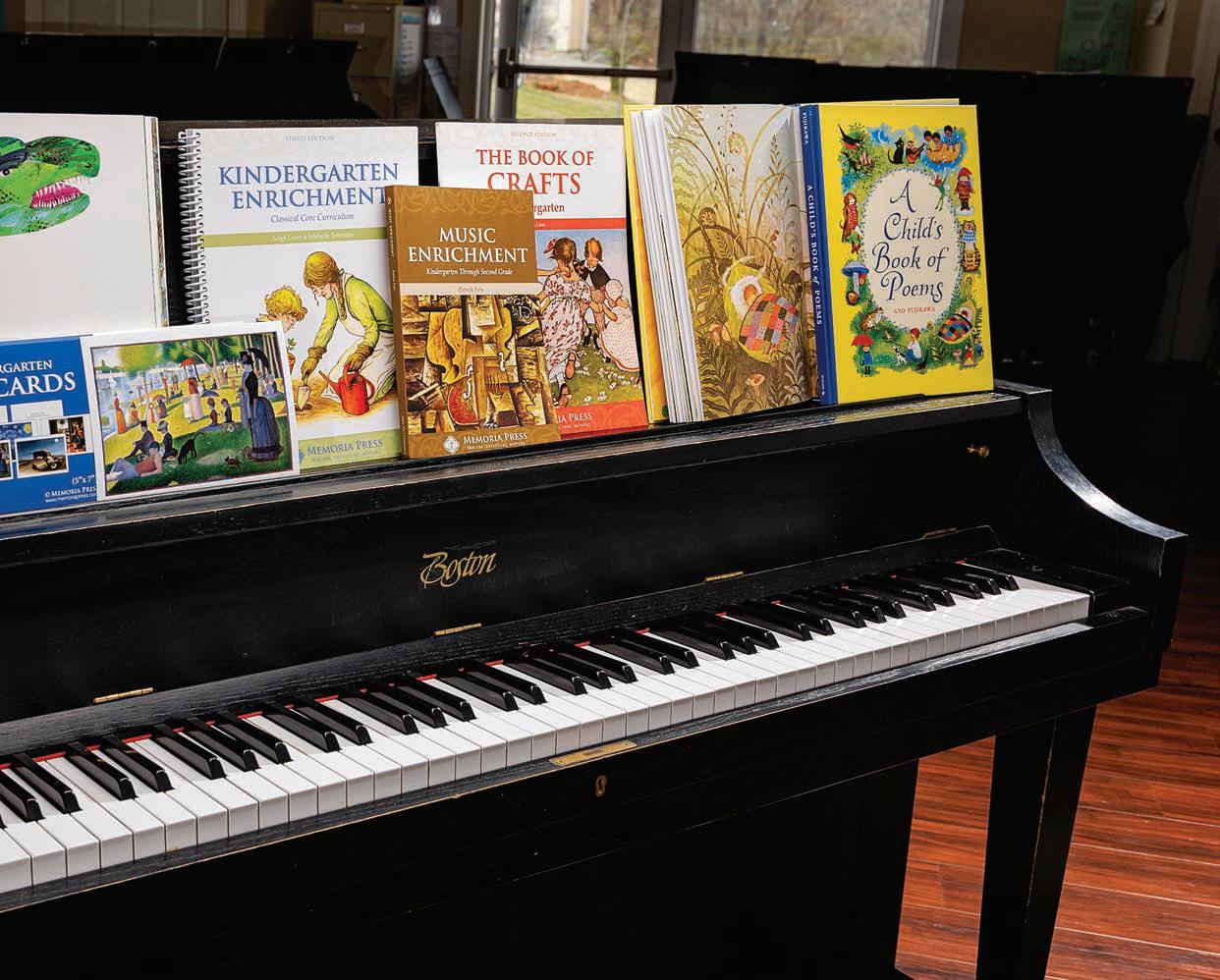




Leigh Lowe
Recommended for Ages 4-5
$32 set (2 books)
Teaches letter recognition, letter formation, and pencil grip. is is a gentle introduction to phonics.



Recommended for Ages 4-5
$16.00
is is the great precursor to Numbers Book Part One. is book introduces each number through 15 and color words with tracing and coloring activities.


Recommended for Ages 4-5
Alphabet $6.50 | Numbers $6.50
Practice number and letter recognition while developing ne-motor and coloring skills.
Numbers Book Part One & Part Two by Leigh Lowe


Recommended for Kindergarten $32 set (2 books)
Continued practice with numbers, counting, and patterns for the kindergarten student who is ready to move beyond simple tracing. is a nice supplement to any kindergarten math program.
Alphabet Flashcards






(4¼'' x 5½")

$11.00
Deck contains one card for each letter of the alphabet. Each card has the upper- and lowercase letter on one side and a simple illustration on the ip side that allows practice with the beginning letter sound.
(also available in New American Cursive font, p. 79) (11'' x 17'') | $16.50
ese visual aids reinforce each letter of the alphabet and numbers zero to nine while young students learn to read and write or practice their penmanship. Each illustration is hand-drawn and matches the drawings on the Alphabet Flashcards





Levels A-C | Grades K-2
Student $16.50 ea. Teacher $5.50 ea. Our goal for math in the primary grades is the mastery of basic facts. One of the most e ective ways to help students achieve mastery is simply to practice. With daily timed drills, Memoria Math Challenge is designed to give students that necessary math practice and also to help the teacher measure students' immediate recall. We start with addition, subtraction, and number dictation in kindergarten, and ramp up to 200 daily problems by the end of rst grade. If students are able to master their math facts in the primary years, they can devote more time to complex math operations in grammar school and upper school. Student Drills are on 3-hole-punched loose-leaf paper to make it easy for you to store and copy if you need additional practice.
Arithmetic Flashcards


Addition & Subtraction, 0 to 18 (6" x 4") $10.95
Multiplication Flashcards
0 to 12 (6" x 4") $10.95
Division Flashcards
0 to 12 (6" x 4") $10.95
Rod & Sta Math books teach your student number facts and arithmetic skills to mastery using clear, uncluttered lessons and plenty of drill practice.
Grade 1 Arithmetic (3rd Ed.)


Student Part 1 $6.95 | Student Part 2 $6.95 Practice Sheets $16.50 Teacher Manual $20.95 Speed Drills $4.90
Grade 2 Arithmetic (3rd Ed.)





Student Unit 1 $6.95 | Student Unit 2 $6.95 Student Unit 3 $6.95 | Student Unit 4 $6.95 Practice Sheets 1 $7.95 | Practice Sheets 2 $7.95 Supplemental Pack $1.75 | Teacher Manual, Units 1-2 $12.75 Teacher Manual, Units 3-4 $12.75



Student Book (with Supplemental Worksheets) $14.95 Teacher Manual (includes Worksheets Key) $15.95 Blacklines $4.50 Speed Drills $4.90
Grades 7-8
Textbook $20.00 Solutions Manual $20.00



Quizzes & Tests $10.95
Quizzes & Tests Answer Key $5.50
VideoText
Grades 7-12
Grade 4 Arithmetic Student $14.95 | Speed Drill Packet $9.50 Teacher Manual Part 1 $11.95 Teacher Manual Part 2 $11.95 Tests $2.25 | Speed Drills $4.90
Grade 5 Arithmetic Student $14.95 Teacher Manual Part 1 $11.95 Teacher Manual Part 2 $11.95 Tests $2.25 | Speed Drills $4.90




Grade 6 Mathematics Student $14.95


Teacher Manual Part 1 $11.95 Teacher Manual Part 2 $11.95 Tests $2.25 | Quizzes and Speed Tests $4.50








Complete Set $399 (online course + books for modules A-F)
Year One Set $235 (online course + books for modules A-C)
Year Two Set $235 (online course + books for modules D-F)
VideoText Math uses mastery-review techniques to fully explore the language of mathematics and algebraic relations. Students watch a tenminute video that develops each lesson's concept while they follow along with their Course Notes, and then complete the exercises in the WorkText Progress Tests help gauge student mastery throughout the year, with multiple forms of each quiz and test available if your student needs a little extra practice. e Instructor's Guide provides step-by-step instructions for solving the problems on each test, while the Solutions Manual does the same for the WorkText
Geometry course also available!

by Cheryl Lowe | Grade K $49.95 set (Books A-D + Teacher Guide)






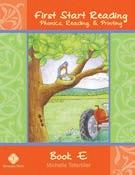


Student Books (A-D) $7.50 ea. Teacher Guide for Books A-D $19.95 FSR is a balanced, age-appropriate approach to phonics and reading, with a serious focus on correct pencil grip and letter formation. e program uses the traditional (vowel-consonant) approach to phonics combined with word families. e FSR kindergarten program consists of 4 student books with artist-drawn pictures to color, drawing pages for each letter or phonogram, and over 40 stories. e Teacher Guide leads you through the program and provides helpful assessments and teaching tips.





by Amber Wheat | Grade K | $16.00
Designed to be used in conjunction with First Start Reading to reinforce the phonetic concepts learned each week.
by Amber Wheat | Grade K | $15.50
Provides the extra practice needed to master manuscript printing. Correlates with the letter students are working on in First Start Reading.
Grade K | $251.72 set
Everything you need to teach your student to read uently, including lesson plans!
Grades K-2 | $18.50
ese phonetically arranged word lists require students to rely on their mastery of letter sounds. Coordinates with First Start Reading, or is a good supplement to any phonics program.


Grades K-2 | $8.50 ea. Reading is a subject that should continue through the summer to avoid regression.




Instructional Videos
$55.00
Let primary specialist Michelle Tefertiller teach your students how to read! ese streaming videos use all the books in the Kindergarten Phonics & Reading Set.
by Cheryl Lowe
Grades K-1
$7.50-$10.00 ea.
NEW
ese Storybooks feature the same targeted phonetic stories found in First Start Reading, with beautifully illustrated black and white pictures to help students stay engaged as they read.
by Michelle Tefertiller | Grade 1 Student Book E $7.50
















Teacher Guide for Book E $10.95
We complete our phonics for reading program at the beginning of rst grade with First Start Reading Book E, which includes long vowel teams, sounds of soft c and g, and the three sounds of y


Grades K-2 (4¼'' x 5½") $25.95
Flashcards for the nearly 200 phonograms used to spell the 44 sounds of the English language.
ese summer reading journals are a perfect way to encourage young children to continue working on reading uency. e font size gets smaller for each journal, and each page is divided in half for drawing and writing small summaries. Kindergarten has the unique goal of reading a book a day for 100 days!


Grades K-2
$67.50 set (18 books) | $3.95 ea.
Classic stories from e Jungle Book, e Wind in the Willows, Tom Sawyer, and Doctor Dolittle have been adapted in these early readers so young children can read good stories on their level.

from A to Z
$27.99
A manual for teachers who want to go deeper into the subject of phonics and reading.


$33.99
An excellent phonics resource for grammar school teachers.




by Cheryl Lowe | Grades 1-3
$54.65 I & II set ea.
(student, teacher, practice sheets, supplemental workbook, supplemental workbook key)
$38.49 III set
(student, teacher, practice sheets)
Student $16.50 ea. | Teacher $18.50 ea. Practice Sheets $5.50 ea.
Supplemental Workbook (I & II only) $8.50 ea.

Supplemental Workbook Key (I & II only) $8.50 ea.

is comprehensive, phonetic approach to teaching spelling is the culmination of our phonics program. Once students have mastered reading "consonant-vowelconsonant" words with short vowels in kindergarten they are ready to begin a spelling program. Traditional Spelling is the perfect next step toward reading uency. Traditional Spelling provides students with an extensive mastery-based study of phonics.
Each four-page lesson features writing and oral dictation practice, color-coded phonogram activities, and short stories on the student's reading level that utilize that week's spelling words.





Myson loves a good find. Antique malls and secondhand stores delight his mind. Yesterday he showed me his latest purchase, a set of old radio comedies on cassette to enjoy from his retro-tech cassette player.
My daughter is the same way. She once rescued a bedraggled doll with legs dangling. Michelle gave the doll an honored spot in her bedroom where she had displayed her homemade sign, "Sweet Valley Children's Home." Her collection of discarded dolls were named, clothed, schooled, and rocked to sleep.

All of this seems fitting because both Michael and Michelle know what it is to be discarded. I do not reference their biological mother, for she loved them and would have cared for them had she been able to do so. No, I'm referencing what my children often experience on a daily basis.
Michael's conditions now include parkinsonism, with sluggish speech, and Pisa syndrome, aptly named by an involuntary, stiff leaning far to one side. His mind has always been "like a sieve," in his words, but now the holes seem enlarged. Some of his brain conditions spark impulsive actions that ba e or infuriate others. Deterioration cannot be easily described, but it can be painfully experienced.
Currently Michael cannot work, except the occasional odd job a neighbor might ask him to do. Even our local sheltered workshop could not help, as it is set up like a factory requiring sustained attention, long hours of repetitive tasks, and productive speed. After just a few months working there, Michael began looking unkempt, was provoking and being provoked by others, and became sullen, angry, and despondent. Michael has often been discarded by those he sought to win, friends he sought to have, and jobs he sought to hold.
His twin sister has seen this more closely than anyone. Michelle is full of grace when Michael seeks to
be restored to her good graces, accepting his apologies and welcoming him back as her friend once again. She has repeatedly been led to pray for her brother, console him, give him space when he is inconsolable, and enjoy his company when all is well. Perhaps all of this prepared her for our family's most recent blow, when Michelle was called aside at her work.
The setting could not have felt more awkward. I had invited a Christian writer friend to join me for lunch at the coffee shop when Michelle would be working.
I knew Michelle would enjoy serving us. On her best days she accomplished this with flair and grace. (At the funded coffee shop, people with special needs are hired intentionally.) She had been working there more than a year. Lately, though, Michelle had grown pale, tired, and easily overwhelmed. She had trouble concentrating and remembering what to do. Lab work had revealed a seriously low iron level, so her doctor had ordered an iron infusion at the hospital. At the same time her schizophrenia and obsessiveness seemed to be insidiously taking over her mind. While my friend and I were having lunch the manager asked to speak with me. I left my friend sitting alone at the table. Michelle joined me and we could see the frustration on her manager's face. Hearing a stream of blunt words— "wasting money paying her" and "Michelle, If you don't improve you cannot work here"—Michelle burst into rare, shamed tears and staggered to the door. "Go console your daughter," my wise friend said, as she hugged me and left for home.
Later at home my husband asked indignantly, "Michelle is too disabled to work at the coffee shop that 'serves up inclusion one cup at a time'?" But this had become a high-pressure job akin to Michael's factory experience. Michelle had warned us and we had not listened. She had shared that she did not do well at work and had frustrated her boss. Mental illness is fragile and sensitive to pressure, criticism, and rejection.
At home we heroically practiced clearing and wiping tables, sweeping floors, and role-playing customer scenarios. But in the current setting, without a floating aide to provide reminders, without posted charts with tasks to check, and without repeated modeling with guided practice, Michelle's inadequacies loomed large.
We gave Michelle the choice. She met our eyes with a factual assessment. "I cannot do it. I'm trying my best but my best is not good enough." Her statement contained no hint of resentment, but rather admirable objectivity. More heroism than futility, Michelle knew it was time to step aside.
Mercifully, that same evening I received a text from my neighbor. This kindhearted Christian woman enjoys my children. Would Michelle be willing to come over and feed my cats while I'm away? I'm going to be out of town for two weeks. I knew that Socks and Oreo would be welcome companions for Michelle.
Michelle and I walked over together. My neighbor had arranged everything for success. She explained and modeled with clear instructions. She had placed measuring scoops in the bin. She showed Michelle how to secure the lid. She set out two separate cat bowls to minimize feline quarreling. She included a spray bottle filled with water and permission to use it if needed. Stephanie had thought of everything. She thanked Michelle with a warm, sincere appreciation. In this remarkable moment, my neighbor had not merely found someone to feed her cats; my neighbor had reclaimed the discarded.
The next day I re-titled our home charts. Michelle has long aspired to be "a notable housewife," so she is our Notable House Helper. Michael, who once longed to serve as a pastor, is our Right-Hand Man. Both att end to outdoor tasks and indoor chores. Both read the Holy Scriptures in quiet time set aside. Michael plays simplifi ed hymns on the piano while Michelle sings along. Michael att ends to geometry lessons with careful diligence. In the evenings we play a family game to fi rm our minds and share each other's company. Both children att end church with us on Sundays, sing hymns, and pray for others. To the world it may look like they "do nothing," but we are not the world.
In the foreword to Simply Classical: A Beautiful Education for Any Child, Dr. Gene Edward Veith writes these words that surprised me at the time. I understand more fully now:

Michael and Michelle are the two heroes of this book. They are twins, and they both have had to struggle all their lives with profound mental, emotional, developmental, and physical difficulties. But as we read this book and follow their education, we see them wake up to the joy of language, the satisfaction they find in beauty, and their academic achievements…. We come to know them as human beings.
In our Christian homes, classrooms, and schools let us love the human beings who need us. Let us bring purpose, belonging, and dignity to the discarded, that the love of Christ may abound in our circles.
Choose from:
New American Cursive 1
New American Cursive 2: Scripture & Famous Quotations
New American Cursive 2: Quotations from Famous Americans

New American Cursive 3: Scripture & Lessons on Manners






New American Cursive 3: Famous Quotes & Lessons on Manners
New American Cursive by Iris Hat eld Grades 1+ | $25.00 ea.
e New American Cursive (NAC) penmanship program is an easy-to-follow resource for learning cursive. Simpli ed letter forms and clear instructions teach your student to write in a fast, legible script. Developed by Iris Hat eld, an educator with 35 years of experience in the handwriting eld, the workbooks improve the process of teaching handwriting and allow students to start at a younger age.
In NAC 1, learn how to form each letter, step by step, with clear starting dots and direction arrows. Correct pencil grip, paper position, and posture are illustrated throughout. Fifteen minutes of workbook practice a day is all it takes! NAC 2 will continue to teach correct letter forms and how to easily connect each letter. Proper size, spacing, and slant are emphasized in 125 instructional exercises. In NAC 3 you will further enhance cursive skills by practicing your best handwriting while learning about manners and correspondence protocol.
• Improved neural connections in the brain
•Increased ability to read cursive
•Increased writing speed
•Improved ne-motor skills
• Improved reading and spelling ability

• Increased self-discipline and eye-hand coordination
• Improved attractiveness, legibility, and uidity of one's signature
• Increased self-con dence, continuity, and uidity when communicating with the written word
Teach Yourself Cursive by Iris Hat eld
Grade 5-Adult | $25.00
Whether you are a beginning older student or are ne-tuning your penmanship later in life, these self-guided lessons make learning cursive a pleasure. Practice just 15 minutes a day to get remarkable results.

Iris Hat eld
Grades 3+ $12.95
Startwrite CD $29.95

Create customizable worksheets in the New American Cursive font to integrate handwriting practice with any subject. Digital download also available. (Windows only)
is easy-to-use supplemental resource for mastering a legible, attractive cursive enhances the pleasure of writing by practicing a di erent, inspiring wisdom Scripture each day. It also includes 50 helpful penmanship tips to improve cursive skills.
Grades K-2
$41.85 set (Copybooks I-III) $15.50 ea.




Copybooks include memory passages, copybook exercises, and drawing pages, incorporating Scripture from the King James Bible and classic children's poems.





(New American Cursive font)
Grades 1-6 | $15.50 ea.
Copybook Cursive I is perfect for second graders alongside NAC 2 or older students needing more practice.
Copybook Cursive II includes Scripture passages from Christian Studies I, the 15 brightest stars from Astronomy, and the major gods from D'Aulaires' Greek Myths. In Copybook Cursive III, students practice their penmanship with beautiful memory passages from Christian Studies II e college-ruled lines of Copybook Cursive IV are perfect for older students honing their penmanship with the Scripture passages from Christian Studies III.
Grades K-6
$9.00 ea.
I: 5/8" Ruled for Younger Students
II: 1/2" Ruled for 1st-2nd Grade Students
III: College-Ruled for Older Students
Our Composition & Sketchbooks allow each student to write and illustrate compositions.



Grades 1-2
$15.50
is workbook is designed as summer practice for rising second graders who have completed New American Cursive 1. It is arranged in lessons to be completed three times a week during the summer.

Cursive Practice Sheets I-III (New American Cursive font)


Ages 6+ $15.50 ea.
Our Cursive Practice Sheets include pages for practicing each cursive letter, Scripture copywork, and blank practice sheets. Book I is a good companion to NAC 1, Book II is extra practice for NAC 2, and Book III is wide-ruled for any older student who needs more practice.


Available in Manuscript (blue) or Cursive (green) (11'' x 17'') | $16.50 ea.
ese visual aids reinforce each letter of the alphabet while young students learn to read and write or practice their penmanship. Each illustration is hand-drawn. e cursive charts use the New American Cursive font.

(New American Cursive font)
by Cheryl Swope
Ages 6-12 (chronological age or skill level) Beginner or Intermediate $9.00 ea. ese journals let students practice cursive while thinking about God's daily blessings in their lives. e Intermediate Journal has a smaller font size and less tracing.

by Cheryl Swope
Ages 4-11 $9.50
Savor small moments of wonder with your child as he learns the simple beauty of nature. is book can stand alone as a delightful supplement to any program.

by Cheryl Swope
Ages 9+ $20.82 set (Fables and copybook)

Aesop Copybook $9.50 Aesop's Fables $14.99
e Aesop Copybook is a lovely companion to Aesop’s Fables. It will strengthen your student's writing and composition skills while giving the opportunity to contemplate the timeless wisdom of Aesop's fables and learn from the gentle moral instruction they provide.
Manuscript and New American Cursive (22'' x 34'') | $7.50
is poster lists the entire alphabet in manuscript and cursive. It is the perfect resource if you don't have the space for our Alphabet Wall Charts .



 by William Kirk Kilpatrick
by William Kirk Kilpatrick



Sobegins Dickens' David opperfield. It's a wonderful passage and immediately confirms Dickens' reputation for having captured the "feel" of childhood as few others have. The dream of being a hero or heroine is perhaps the child's most common fantasy. Children do, of course, also dream of wealth and ease, but they are more interested in the excitement and tension that heroism holds out. The hero makes demands upon himself, and that is what a child wants to do, must do, in order to grow.
Thus when he daydreams, it is on a heroic scale. He wants to enlist in great causes, bring victory to the right side, keep vigil while others sleep, defend the innocent, and rescue those in danger. Young David Copperfield is merely reflecting the hope of any normal boy or girl. Even Holden Caulfield, the cynical young narrator of Catcher in the Rye, dreams of being a hero. The story derives its title from his wish to spend his life catching children who might otherwise come too near a dangerous cliff.
Although they are less likely to admit it, adults also would like to be heroes of their own lives. Most parents want on some level to be heroes to their children, and most men would like to be heroes to wives or girlfriends. It's a familiar form of wishing. How many times have we imagined scenarios in which we come daringly to the rescue of strangers or spouses or children?
If the kind of stories we like are any indication, we have not lost the taste for heroism. Accounts of heroism figure prominently in popular newspapers and magazines. The policeman-as-hero and doctoras-hero are stock characters on television. Grownups and children flock to movies such as Star Wars, Rocky, and Indiana Jones. We also make heroes out of sports stars, and often act as though something crucial were at stake when two teams clash. Professional wrestling, which is a cross between sport and entertainment, is deliberately cast in terms of heroes and villains, and is tremendously popular.
These hyped-up media events are easy to criticize; they are watered-down or contrived versions of heroism. Nevertheless, they reflect a popular taste and instinct that goes back to Homer, for whom the best kind of life, the memorable life, was modeled on a heroic story.
William Kirk Kilpatrick is the author of several books on religion and culture, including Why Johnny Can't Tell Right From Wrong (1992), from which this article is excerpted. He taught for many years at Boston College.
Which leads to a second observation.
The desire to be a hero, so common to children and adults, is part of a larger wish: the hope that one's life can be like a story. It is such a basic wish that we hardly reflect on it. For the most part we simply assume that our lives will make sense. And the kind of "making sense" we intuitively have in mind is not the sense of a mathematical equation or a scientific theorem but the kind of sense a story makes.
Even the kind of meaning philosophy offers does not quite do the trick. The Spanish writer Fernando Savater tells how his little brother picked up a philosophical essay from his desk and asked, "Does this have a plot?" When he found out that it did not, he replied, "Then I can't imagine how it can be a book."
Like Savater's brother, most people want their stories to come with plots—just as they want their cars to come with wheels. It is the popular belief that stories ought to go somewhere. And most of them do. A surprising number of myths and adventure stories and even novels take the form of a journey. The Odyssey, Treasure Island, Pilgrim's Progress, Moby-Dick, and The Lord of the Rings are but a few examples.
The same impulse that makes us want our books to have a plot makes us want our lives to have a plot. We need to feel that we are getting somewhere, making progress. There is something in us that is not satisfied with a merely psychological explanation of our lives. It doesn't do justice to our conviction that we are on some kind of journey or quest, that there must be some deeper meaning to our lives than whether we feel good about ourselves.
For example, Viktor Frankl has noted that the two major theories of motivation—tension reduction (Freud) and self-actualization (Maslow)—do not account for many of our actions. Our greatest need, says Frankl, is to find meaning in our lives; and the most effective therapy, he suggests, would help clients to see their lives as a meaningful story.
Bruno Bettelheim makes much the same point. His main task as a therapist of traumatized children was, he writes, "to restore meaning to their lives." What is the most important source of meaning? After his relationship with his parents, it is literature that best conveys meaning to the child. What type of literature? Fairy tales and hero stories, replies Bettelheim. Why? Because they teach that "a struggle against severe difficulties in life is unavoidable, is an intrinsic part of human existence—but that if one does not shy away, but steadfastly meets unexpected and often unjust
“Whether I shall turn out to be the hero of my own life, or whether that station will be held by anybody else, these pages must show.”
hardships, one masters all obstacles and at the end emerges victorious." And what is true for children is true for adults. "To find deeper meaning," writes Bettelheim, "one must be able to transcend the narrow confines of a selfcentered existence and believe that one will make a significant contribution to life—if not right now, then at some future time."
Nothing serves this purpose better than the ability to visualize life as a story. G. . Chesterton wrote: "My first and last philosophy, that which I believe in with unbroken certainty, I learnt in the nursery…. The things I believed most in then, the things I believe most now, are the things called fairy tales." This is all the more significant coming from Chesterton, who, among English writers, is perhaps unmatched in his sheer enthusiasm for life. The perspective he maintained as an adult was the same as in childhood. In Orthodoxy, one of his best books, he confesses: "I had always felt life first as a story."
Stories reinforce the sense that life makes sense—something we are prone to forget from time to time. And some stories do this better than others.


Stories may occasionally play an even more important role. Paul Zweig, in commenting on Arabian Nights, notes that "endless numbers of characters save their lives in the nick of time by coming up with a good story to tell." And of course, the frame tale for this collection of tales is the story of Scheherazade, who keeps herself alive by telling a story every night for a thousand and one nights. We all know that stories entertain, but as suggested by the Arabian storytellers, they can also serve a more basic function. Put simply, they save lives. The conviction that our life is a meaningful story can literally keep us alive. The stories we read or hear or see on film can reinforce and sustain that conviction. They help us to see that our lives are worth living.
In times of despair, finding the right story can be lifesaving. There is, of course, no formula for predicting what will do the trick. What touches a chord in one person's life leaves another person unmoved. Still, there are stories that allow those who have lost hope to place their plight within a meaningful pattern. It might be an inspirational book—something like the story of Jill Kinmont Boothe or Joni Eareckson Tada. It might be a biography or a story remembered from childhood. It might be the story of Job, or the story of Viktor Frankl's concentration camp ordeal recounted in Man's Search for Meaning. It need not be a story of clear-cut heroism or unequivocal triumph. Sometimes it is the unheroic hero who best meets our need, the kind one encounters, for instance, in the novels of Graham Greene: protagonists who themselves grope through darkness and despair, whose struggles go largely unrecognized and unrewarded, who nevertheless win through to some kind of victory.
Up to now I have suggested that stories can keep us going in the face of despair. Now I would like to suggest something further—the main point, really. Stories can also help to keep us on the path of virtue. They can give us not only a reason for living but also a reason for living well. This doesn't mean we should look for a simple connection such as, "People who read stories are better than people who don't." For one thing, it would depend on the kind of stories they read; for another, the link between stories and virtue is an indirect one. It has to do, once again, with this conviction that our lives are—or ought to be—stories. The sense that life makes sense is really the sine qua non for ethical behavior. If the larger thing—existence itself—means nothing, then individual acts performed within that meaningless scheme are themselves meaningless.
The point is this: The best motivation for acting well—and hence the surest foundation for morality—is the belief that we have a role to play in life. When Alexander Pope wrote, "Act well your part: there all the honour lies," he cut through to a basic truth about morality. Morality is not merely a matter of rule keeping but of role-playing.



Stories reinforce the sense that life makes sense
something we are prone to forget.








Grades 1-2 $35.00
Get to know the heroes of the Bible while working through writing exercises that include key word outlining, paraphrasing, and summarizing stories. Teacher's Manual eBook is included.
Grades 3-4
Student $10.95 Key $10.95
by James A. Selby | Grades 4-12
$96.22 set ea. (student, teacher, videos) Student $21.95 ea. | Teacher $29.95 ea. Instructional Videos: DVDs or Streaming $55.00 ea. (available for I-VIII)


Grades 3-5 | $35.00
Humorous characters and fascinating creatures will help young students enjoy learning to take notes, summarize narrative stories, write from pictures, and compose creative essays. Teacher's Manual eBook is included.
is introductory program focuses on narration, outlining, dictation, and copywork to help students become more pro cient in listening and writing skills, a great preparation for Classical Composition . is yearlong writing course uses focus passages from Charlotte's Web , Farmer Boy , A Bear Called Paddington , Mr. Popper's Penguins , and e Mo ats


Classical Composition is our study in the progymnasmata ("the before exercises"), a combination writing and pre-rhetoric program that teaches students the fundamental writing skills of style, arrangement, and invention in clear and systematic lessons. e nine stages of Classical Composition will not only teach the art of communication, but are designed to produce what Quintilian once called "the good man, speaking well."
e structured lessons in the Student Guides help students become con dent writers as they thoroughly master the incremental skills of each stage. e Teacher Guides provide sample answers for every exercise as well as scripted Chalk Talk. Optional Instructional Videos are also available if you'd like the support of a master teacher to help guide you and your students through the lessons.



Grades 3-8
English Grammar Recitation $10.95 | Flashcards $13.50 Student $12.95 ea. | Teacher $13.95 ea.







Grade 2
Student $8.50 | Teacher $10.95
Designed for the nal year of primary school, this program is an oral practice of many basic aspects of language arts, from capitalization and punctuation to language and reading skills.
Memoria Press' English Grammar Recitation is perfect for the student who needs an English grammar program that coordinates with his study of Latin. 150 grammar questions with answers and examples, designed to be studied and memorized much like a catechism, are compiled in the English Grammar Recitation reference book. ese questions are learned over the course of six years in just thirty minutes a week. Students are given practice exercises in the Student Workbook and the opportunity to practice immediate recall with the Flashcards. e Teacher Guide provides answers to all exercises.


Starting late? No problem!
Complete Fable and Narrative in one year and get a reduced package price of $138.98 for both sets of Student and Teacher Guides and videos.
CLASSICAL COMPOSITION STAGES:



I: Fable (pictured)
II: Narrative
III: Chreia & Maxim
IV: Refutation & Con rmation
V: Common Topic
VI: Encomium, Invective, & Comparison

VII: Characterization (1 semester)
VIII: Description (1 semester)
IX: esis & Law





by Martin Cothran | Grades 7+
$77.97 complete set ea. (text, workbook, key, quizzes, videos)
$41.46 basic set ea. (text, workbook, key, quizzes)
Text $15.00 ea. | Workbook $17.50 ea. | Key $10.95 ea. Videos $55.00 ea. | Quizzes $5.50 ea.
Material Logic: A Course in How to ink by Martin Cothran | Grades 9+ $93.56 complete set (text, workbook, key, quizzes, videos) $44.06 basic set (text, workbook, key, quizzes)
Text $15.00 | Workbook $17.50 Key $10.95 | Quizzes & Test $5.50 Videos $55.00

Material Logic is a course in how to think. It covers the branch of logic called "informal logic" that deals with the content of argumentation. It can be used as a follow-up to Traditional Logic or simply as an introduction to the rudiments of classical philosophy for high school students. e program covers the ten ways something can exist, the ves ways of saying something about something else, de nition, and division.





Handbook of Christian Apologetics: Hundreds of Answers to Crucial Questions

by Peter Kreeft & Ronald K. Tacelli
$30.00 (optional supplement)

by Peter Kreeft
$20.00 (optional supplement)
Traditional Logic I and II cover the branch of logic called "formal logic," which is concerned with the form and structure of reasoning. It focuses on the procedural aspect of reasoning, its mechanics, how we properly get from two premises or assumptions to a conclusion. e program is designed to teach students a practical mastery of the art of argument.







Traditional Logic I presents the four kinds of logical statements, the four ways propositions can be opposed, the three ways which they can be equivalent, and the seven rules for the validity of syllogisms.
In Traditional Logic II students will master the use of the nineteen valid categorical argument forms through the memorization of a medieval mnemonic device, and learn the three kinds of hypothetical arguments. Students will study examples of arguments from history and literature.
e Texts explain challenging concepts in clear, concise language. e accompanying Student Workbooks include enough exercises to ensure that the student masters the material before moving on. e Teacher Keys include answers to the workbooks, quizzes, and tests. Instructional Videos are also available if you would like a little help from the author teaching the material.
Classical Rhetoric: Aristotle's Principles of Persuasion by Martin Cothran | Grades 9+ $146.32 complete set (basic set + How to Read a Book & Figures of Speech) $96.30 basic set (student, teacher, videos, Aristotle's Rhetoric) Student $29.95 | Teacher $10.95 Quizzes & Tests $5.50 Videos $55.00 | Aristotle's Rhetoric $5.00 How to Read a Book $18.00 Figures of Speech $44.95



Classical Rhetoric is a guided tour through the rst part of the single greatest book on communication ever written: Aristotle's Rhetoric. is course involves a study of the fundamental principles of political philosophy, ethics, and traditional psychology. Your student will not only learn the basics of political speech, but also the elements of good character, the seven reasons people act, and what elicits speci c emotions under particular circumstances and why.



translated by W. Rhys Roberts $5.00
(REQUIRED supplement)
How to Read a Book: e Classic Guide to Intelligent Reading by Mortimer J. Adler & Charles Van Doren $18.00 (optional supplement)

Figures of Speech: 60 Ways to Turn a Phrase by Arthur Quinn $44.95 (optional supplement)

is now the case, as it has always been the case, that it is by exposing our children to good character and inviting its imitation that we will help them develop good character for themselves. This means our schools must have what the ancient Greeks would have called an "ethos"—that is, our schools themselves must have good character. Such an ethos depends on two crucial conditions. First, teachers and principals must be willing to articulate ideals and convictions to students. As Oxford's Mary Warnock has written, "You cannot teach morality without being committed to morality yourself; and you
cannot be committed to morality without holding that some things are right and others wrong."
This statement is so obvious that it is hard to believe we have overlooked it in some places, even rejected it in others. As the theologian Martin Buber pointed out, the teacher is different from other influences in one important way, and it is definitely not in his neutrality. As Buber wrote: … the educator is distinct from [all other influences] by his will to take part in the stamping of character and by his consciousness that he represents in the eyes of the growing person a certain selection of what is, the selection of what is "right," of what should be.



Now, I am not talking about browbeating students into accepting points of view. That is simply hard indoctrination, which we all deplore. Nor am I talking about moralism. I am talking about ethical candor. To put students in the presence of a morally mature adult who speaks honestly and candidly to them is not to violate their rights. On the contrary, it is essential to students' moral growth. And it seems to me that this is why many teachers entered the profession in the first place—because they thought they could make a positive difference in the lives of students, in the development of their character, to make them better as men and women, as well as to help develop their skills.
The second condition for a proper ethos in the school is this: We must have teachers and principals who not only state the difference between right and wrong, but who make an effort to live that difference in front of students. In this business of character, there has never been anything as important as the quiet power of moral example.
William J. Bennett is the highly respected author of several books on education and culture, and was the Secretary of Education from 1985-1988. This is an excerpt from a speech given to the Harvard Club in 1986.

You can't expect children to take messages about rules or morality seriously unless they see adults taking those messages seriously in their day-today affairs. Certain things must be said and certain examples must be set—there is no other way. These are the first and most powerful steps in nurturing character and developing moral literacy in the young.
And what do I mean by "moral literacy"? As E. D. Hirsch has pointed out, being literate entails more than recognizing the forms and sounds of words. It is also a matter of building up a body of knowledge enabling us to make sense of the facts, names, and allusions cited by an author. This background knowledge Hirsch calls cultural literacy. For example, someone who is unsure who Grant and Lee were may have a hard time understanding a paragraph about the Civil War, no matter how well he reads. Likewise, a reader who isn't familiar with the Bill of Rights will not fully understand a sentence containing the words "First Amendment." Understanding a subject, then, involves not just the possession of skills; it also depends on the amount of relevant prior knowledge a reader has, on his cultural literacy.
Let me return here to the idea of moral literacy. Because they are not born with this knowledge, children need to learn what the fundamental traits of character are—thoughtfulness, fidelity, kindness, diligence, honesty, fairness, self-discipline, respect for law. As I have said, children will learn them most profoundly by being in the presence of adults who exemplify them. But we can help the grasp and the appreciation of the desirability of these traits through the curriculum.
Do we want our children to know what honesty means? Then we might teach them about Abe Lincoln walking three miles to return six cents, and, conversely, about Aesop's shepherd boy who cried wolf.
Do we want our children to know what courage means? Then we might teach them about Joan of Arc, Horatius at the bridge, and Harriet Tubman and the Underground Railroad.
Do we want them to know about kindness and compassion, and their opposites? Then they should read A Christmas Carol and The Diary of Anne Frank and, later on, King Lear
We want our children to know what faithfulness to family and friends means, and so they should know how Penelope and Telemachus and even an old dog waited twenty years for Odysseus to come home. We want them to know about respect for the law, so they
should understand why Socrates told Crito: "No, I must submit to the decree of Athens."

We want them to know about persistence in the face of adversity, and so they should know about George Washington during the Revolution and Lincoln during the Civil War. And our youngest should be told about The Little ngine That ould
We want them to see the dangers of an unreasoning conformity, so we should tell them about the emperor's new clothes and about the Salem Witch Trials. We want them to see that one individual's action can make all the difference, so we should tell them about Rosa Parks and about one man's discovery of a vaccine against polio.
We want our children to recognize greed, and so they should know King Midas. We want them to recognize vanity, and so they should read "Ozymandias" and learn about Achilles.
We want our children to respect the rights of others, and so they should read the Declaration of Independence, the ettysburg ddress, and "Letter from Birmingham Jail."
They should know about Ruth's loyalty to Naomi, Joseph's forgiveness of his brothers, Jonathan's friendship with David, the Good Samaritan's kindness toward a stranger, and David's cleverness and courage in facing Goliath, as well as Cain's treatment of his brother Abel.
Do our children know these stories, these works? Unfortunately, in many places, they do not. Why should we go to the trouble of teaching these stories? First, because these stories and others like them are interesting to children. For getting children's attention, nothing in recent years, on TV or anywhere else, has improved on a good story that begins: "Once upon a time…."
Second, because these stories give children some specific, common reference points. Our literature and history are a rich quarry of moral literacy. We should mine that quarry. Children must have at their disposal a stock of examples of right and wrong and good and bad—examples illustrating that, in many instances, what is morally right and wrong can indeed be known.
The third reason is that they can help anchor our children in their culture, its history and its traditions. Our traditions are a source of knowing the ideals by which we wish to live our lives. We should teach these accounts of character to our children so that we may welcome them to a common world, and in that common world to the continuing and common task of preserving the principles, the ideals, and the notions of greatness we hold dear.

Grades 3+ $66.30 set (student, teacher, The World of Mammals, What Is a Mammal?, What Is the Animal Kingdom?)





Student $15.95 Teacher $17.95 e World of Mammals $20.00
What Is a Mammal? $7.95 What Is the Animal Kingdom? $7.95
e young student's natural fascination with animals makes this in-depth study of the habitats, behaviors, and classi cation of mammals a wonderful grammar school course. Lessons draw from e World of Mammals, What Is the Animal Kingdom?, and What Is a Mammal? and include comprehension questions, drawing exercises, and observation pages.


Grades 3+
Student $15.95 | Teacher $18.95
Teach your student the story of the sky! is guide covers stars, constellations, the solar system, and the zodiac.





Grades 4+ $64.30 set (text, student, teacher, field guide, flashcards)
Text $16.50 | Student $16.50 Teacher $18.50 | eBook $12.00 Flashcards $10.95 | Peterson Guide $8.99

A narrative approach to the life of insects that takes your student through classi cation, anatomy, and more!
by Sarah Jo Davis and Kalee Miller | Grades 5+ $76.89 set (text, student, teacher, field guide, coloring book, flashcards)
Text $19.50 | Student $16.50 | Teacher $18.50 Peterson Guide $8.99 | Coloring Book $10.99 | Flashcards $10.95
e Book of Birds is a thorough introduction to a fascinating avian world, covering everything from anatomy and the physics of ight to social habits and habitats.





by Sean Brooks | Grades 6+ $64.99 set (text, student, teacher, field guide, Tree Book)


Text $16.50 | Student $16.50 | Teacher $18.50 Peterson Guide $8.99
e Tree Book for Kids and eir Grown-Ups $15.95

Do you know that the very gift of breath is the result of the oxygen that trees and plants produce? Or that trees and plants provide the means of sustenance for all life on Earth? e Book of Trees , along with the Student Workbook and Teacher Guide , will teach your student both plant morphology and taxonomy (the di erent parts and di erent kinds of plants), as well as photosynthesis and respiration. Other chapters cover owers and fruits. e second half of the course is dedicated to tree observation and classi cation.

Grades 5-9
Text $14.99 ea.
Supplemental Student Questions $5.50ea.
Teacher Key & Tests $8.50 ea.
J. H. Tiner's illustrated science books for middle school students are written from a biblical perspective and have won numerous awards. Each includes review questions and activities for every chapter, and Memoria Press has written supplemental questions, unit reviews, and tests for each book.
Choose From:
Exploring the History of Medicine Exploring Planet Earth

Exploring the World of Mathematics Exploring the World of Chemistry



by Christopher O. Blum & John A. Cuddeback
Grades 6+
Text $21.95 | Student $12.95
Teacher $13.95

Exploring the World of Physics Exploring the World of Biology Exploring the World of Astronomy



Grades 6+
See full book and price lists on MemoriaPress.com!
Novare is committed to a masterylearning paradigm. Accurate explanations and a thorough treatment of the subject matter characterize these courses from start to nish. e Digital Resources download includes quizzes and exams, a teacher key, weekly review guides, and more.
Choose From: Physical Science Earth Science


Introductory Physics

Grades 9+
Student $19.95 | Teacher $22.95 Tests $5.00
Coloring Workbook $22.99

Streaming Instructional Videos $55.00
Accelerated Chemistry Physics: Modeling Nature



is introduction to natural history instills in the beginning student of biology a love for the beauty and order of the animal kingdom through the eyes of the classical naturalists.


Spend several weeks each on biochemistry, cell structure, genetics, microbiology, the structure and function of plants, and a study of vertebrate and invertebrate animals.
*NOTE: Modern Biology has gone out of print. If you are using our guides for this program you will need to purchase a used textbook elsewhere.






